#when david should have been nominated for des
Text


David Tennant - photographed in 2021 by Elisabeth Hoff
for Tennant Tuesday (or whatever day this post finds you)
#david tennant#tennant tuesday#2021 bafta photoshoots#when david should have been nominated for des#but wasn't#and I'm still bitter about that#even though he finally was nominated in 2024#it's about dang time!#stuff i posted
173 notes
·
View notes
Note
Hey there! :) Curious if you can share some information about the dishonor that Major Tousard speaks about in his letter to Georges de La Fayette / the situation surrounding that particular letter.
Dear @ouiouixmonami,
I happily will do that. You have to apologize that my answer is somewhat delayed – your question got, in the truest sense of the word, lost in translation. I translated the term “brother-in-law” wrong in my head while pounding your question and that in turn let me to search for a person that never existed – but now I am back on track. :-)
For everybody who does not know the context, the question was asked in relation to this letter from a Major Lewis/Louis de Tousard to Georges de La Fayette.
Major Lewis/Louis de Tousard had married Anna Maria in 1795. Geddes had a brother, Simon Geddes. Geddes (died 1807) entered the military and on July 31, 1794, George Washington wrote in a letter to the Senate of the United States:
I nominate the following persons as Company Officers and Surgeon and Surgeons Mates in the Corps of Artillerists and Engineers.
“From George Washington to the United States Senate, 31 May 1794,” Founders Online, National Archives, https://founders.archives.gov/documents/Washington/05-16-02-0138. [Original source: The Papers of George Washington, Presidential Series, vol. 16, 1 May–30 September 1794, ed. David R. Hoth and Carol S. Ebel. Charlottesville: University of Virginia Press, 2011, pp. 165–166.] (05/10/2023)
Simon Geddes of Delaware was one of the names on the list and he was thus made a lieutenant in June of 1794. Geddes next appears in the records in February of 1795 when he confirms Captain Bruff’s representation of the character of William B. Smith. They all served in the same corps.
Simon Geddes was found guilty and was dismissed from service during a court-martial held on May 12, 1796 (the sentence was not pronounced until the 16th of May). The records are sadly lost so we do not what his misconducts were. Regardless of that, Geddes applied to James McHenry, then Secretary of War, on June 8, 1796 for a re-trial based on a procedural error. James McHenry explained the matter in a letter to George Washington on June 14, 1796:
It is declared, in the articles of war, vz. Art. 1. for the administration of justice, that, “General courts-martial may consist of any number of commissioned officers from five to thirteen, inclusively; but they shall not consist of less than thirteen where that number can be convened without manifest injury to the service.”
This article discovers great solicitude that general courts-martial should consist of the highest number of members it prescribes; and implies very strongly, that every number inclusively between five and thirteen, is to be sought for, and prefered to that of five. It does more. It expresly precludes five members from being considered as a constitutional general court-martial, whenever thirteen can be convened, without manifest injury to the service.
A general court martial therefore, which should consist of five members only, could not be held to be legal, unless it should be evident that more members could not have been added, so as to approach it to thirteen without manifest injury to the service.
Viewing the question in this aspect, it might be proper, that the fact should be ascertained, whether the situation of the garrison or corps at West-Point, (at the time when the court tried Lt Geddis) was such, as to render a limitation of its members to five an indispensible measure. (…) I would submit therefore the propriety of returning the proceedings to the commandant of the corps at West Point, with instructions to make the necessary investigation, and grant a new trial, if it should appear to him, that a greater number of members than five might have been convened at that time, “without manifest injury to the service.
“To George Washington from James McHenry, 14 June 1796,” Founders Online, National Archives, https://founders.archives.gov/documents/Washington/05-20-02-0199. [Original source: The Papers of George Washington, Presidential Series, vol. 20, 1 April–21 September 1796, ed. David R. Hoth and William M. Ferraro. Charlottesville: University of Virginia Press, 2019, pp. 287–289.] (05/10/2023)
In short, Geddes, who had been found guilty by a committee of only five men, argued that the situation at West-Point at the time was such, that more man could have taken part in his court-martial.
Washington replied to McHenry on June 22 and agreed with his assessment, the matter was to be returned to the commandant as West Point – but it only got more complicated from here on. On July 26, McHenry received a letter from the officers at West Point, requesting that Geddes was to be released and pardoned. James McHenry faithfully brought the matter before Washington on the same day and stated his opinion whether Washington was at all able to revoke the sentence passed by the court-martial since a new law had recently been passed:
I have also received this morning the inclosed letter, and representation from the officers at West-point, praying that Lt Geddis may be released from his arrest.
On this subject I would observe, That the act passed last session of Congress fixing the military establishment of the U.S. contains the following section.
Sect. 18. “And be it further enacted that the sentences of general courts-martial, in time of peace, extending to the loss of life, the dismission of a commissioned officer; or which shall, either in time of peace or war, respect a general officer, shall with the whole of the proceedings in such cases, respectively, be laid before the President of the U.S.; who is hereby authorised to direct the same to be carried into execution or otherwise as he shall judge proper.”
This clause was incorporated into the act in order to remove some doubts heretofore started respecting the power of the President to pardon certain military offences in time of peace.
For my own part, I have no doubt, that independent of this act, the President possesses the power to remit sentences of courts martial extending to the loss of life or dismission of a commissioned officer I consider that part of the act therefore as surplusage.
If however it was to serve as authority it would not apply to the present case; inasmuch as it has had no retroactive effect given to it. The sentence on Geddis was pronounced on the 16th of May; and the act in question passed on the 30th.
I look to a higher authority for the power of the President to remit sentences of courts-martial.
The constitution art. II. sect. 2. constitutes the President [“]commander in chief of the army and navy of the U.S.” and vests him with “power to grant reprieves and pardons for offences against the U.S., except in cases of impeachment.”
Congress cannot pass any regulations for the government of the land and naval forces which may intrench upon, invalidate or nullify this power to pardon offences against the United States.
If this is a true exposition of the constitution, the President may if he should think proper comply with the request in favour of Lt Geddis.
“To George Washington from James McHenry, 26 July 1796,” Founders Online, National Archives, https://founders.archives.gov/documents/Washington/05-20-02-0319. [Original source: The Papers of George Washington, Presidential Series, vol. 20, 1 April–21 September 1796, ed. David R. Hoth and William M. Ferraro. Charlottesville: University of Virginia Press, 2019, pp. 497–500.] (05/10/2023)
In his letter from August 1, Washington was in favour of both McHenry’s reasoning and Gedde’s acquittal. But even he was not completely sure how to best go about it and wanted to confer with the Attorney General. He wrote:
I have no objection to the releasement of Lieutt Geddis from his present arrest, at the request of those Officers who have asked it; But as the Attorney General will be at Philadelphia, I would have his opinion taken on the power of granting a pardon for the Offence of which he has been found guilty, and Cashiered; and the mode by which it may, with propriety, be accomplished: for it may be questioned, whether a remital of the Sentence of the Court, ought not to be preceeded by an act of approval, or rejection, as the foundation. At any rate some attention to the form (which I request may be given) will be necessary.
“From George Washington to James McHenry, 1 August 1796,” Founders Online, National Archives, https://founders.archives.gov/documents/Washington/05-20-02-0334. [Original source: The Papers of George Washington, Presidential Series, vol. 20, 1 April–21 September 1796, ed. David R. Hoth and William M. Ferraro. Charlottesville: University of Virginia Press, 2019, pp. 546–547.] (05/10/2023)
Charles Lee wrote on August 4 to James McHenry that:
The Attorney General is of opinion that the President of the United States has power to Pardon Lieutenant Geddes for the offence of which he has been found guilty, though the sentence of the court martial has neither been rejected or approved. The enclosed form may be used.
Notes of “To George Washington from James McHenry, 8 August 1796,” Founders Online, National Archives, https://founders.archives.gov/documents/Washington/05-20-02-0349. [Original source: The Papers of George Washington, Presidential Series, vol. 20, 1 April–21 September 1796, ed. David R. Hoth and William M. Ferraro. Charlottesville: University of Virginia Press, 2019, pp. 565–567.] (05/10/2023)
James McHenry transferred the Attorney General’s opinion and the filled-out form to Washington on August 8 and Geddes was pardoned on August 12, 1796 by Washington’s signature, based on the following:
in consideration of the youth and inexperience of Lieutenant Geddes and for divers other good causes
Notes of “To George Washington from James McHenry, 8 August 1796,” Founders Online, National Archives, https://founders.archives.gov/documents/Washington/05-20-02-0349. [Original source: The Papers of George Washington, Presidential Series, vol. 20, 1 April–21 September 1796, ed. David R. Hoth and William M. Ferraro. Charlottesville: University of Virginia Press, 2019, pp. 565–567.] (05/10/2023)
Geddes was ordered to return to his command. One should think that the story ends here and that Geddes, lucky to have escaped without any serious consequences, would stay clear of any trouble – well, no.

Journal of the United States Artillery, Vol. 29, Artillery School Press, Virginia, 1908, p. 85.
After Geddes ultimate dismissal, Washington nominated a man named Robert Parkinson to replace Geddes and Parkinson did so on December 19, 1796.
With all that being said, I apologize for writing such a long post without really answering your question since I have no information on the original “dishounor” Tousard mentioned in his letter. But at least we know now that Simon Geddes managed to get himself in a whole lot of trouble.
I hope you have/had a beautiful day!
#ask me anything#ouiouixmonami#french history#american history#american revolution#history#letter#james mchenry#george washington#anna marie geddes#louis de tousard#lewis tousard#georges de la fayette#1796#1795#1794#simon geddes#founders online#west point#nathaniel cudworth#charles lee#robert parkinson
14 notes
·
View notes
Text
CTHONIC ATTACK
Well, Yevgeny sleeps with the Mr Evil/Uncle Fester angels now eh? (Nice that his boys will have a safe harbour in Belorussia, delicate mercenaries need a place in which to recuperate after killing women, children, noncombatants and torturing fictitious enemies.) His people released a statement saying the crash with one wing was caused by ‘traitors of Russia’. (Can’t blame the FSB for doing what they are told, and jolly decent of them to time the explosion over some fields.) The Wagner troll factory, as ordered by the Kremlin Gremlin have already pumped out faecal nuggets that the West planted the bomb/s.
Funny just how many leaders (political or religious) of countries these days are endlessly betraying their people in the name of impure self-interest and calling it patriotism. One more time yet once again… ‘Patriotism is the last rock to which a scoundrel clings’. Comrade Trump et al. Name the shameless in your heads, East and West. Look into their eyes and see their corrupted hearts, withdraw all your energy from them and feed your lifeforce.
The ugly mug shot of the orange Reptilian one… sure he wanted to look defiant but ended up looking like a smacked and sullen child denied his wish. (The moment when an adult knows one smack won’t cut the mustard and the kid will need far more.) And usually, the cops tell you to stand straight, how was such glowering beneath a dyed fringe allowed? The petulant ex-president is using the photo as a rallying (baby man-child) cry for extra funding from morons, outside forces and traitors…as a poster, it aint exactly Che Guevara eh? And yet, so far, has got 1.7million dollars. FFS. Horrific to read how many still support his nomination, some serious mental disease over there. (Says Dave in England). Lock him and his cohorts up or get them all on a plane to St Petersburg.
‘The possibility that empathy resides in parts of the brain so ancient that we share them with rats should give pause to anyone comparing politicians with those poor, underestimated creatures’. Frans de Waal. Pause or paws?
X marks the pus-filled spot…Nice endorsement for Elon from the Talibananna’s ‘Thought Leader’ Anas Haqqani who likes Twitter because of ‘the freedom of speech’. Erm…God is great isn’t he? Jesus saves but Shiva destroys. Boys…
The Edinburgh Fringe Festival, established in 1947…shows comedians mainly - the last intelligent group (other than most scientists perhaps) left speaking truth to power. However, the blind - to - irony for using the title ‘Woke’ sleepwalkers honk on about diversity and inclusivity and then refuse a platform for any who disagree with them…So, diverse and inclusive up to a point. Graham Linehan, an excellent writer of comedy was banned from performing, among others, for calling it as it is (or very much seems to be) vis a vis the gender debate.
Left and Right pointing fingers and accusing the other side of cancelling culture when both are equally guilty of closing down free speech from any with which they disagree. That said, I will hereby admit, without shame that I also, on insanely rare occasions, have been less than innocent of the Great British double standards. E.g., taking part in the early nineties in my second demonstration, to stop Holocaust denying ‘historian’ David Irving from giving a speech. In spite of my beliefs, I would try and close him down again. When someone’s twisted rhetoric encourages a deranged and dangerous mob, they need to be shut off and right out. Hello Donald, Putin’s useful idiot.
But I digress…Back to the modern nightmare of abused language.
‘People who identify as men can, and do become pregnant and give birth, if they possess a uterus and ovaries’ Medical News Today. That’s a BIG ‘if’.
‘Having a period is not a feminine thing, and people of all genders menstruate, including non-binary people, agender people and even plenty of men! Menstruation doesn’t change anything about your body, it’s just a thing that some bodies do.’ Transhub.org. Read this a couple of times, let it all sink in. They also talk about a ‘front hole’, as presumably those members of homo ‘sapiens’ with an XX chromosome reading this blurb do not know the difficult word vagina. And in first place comes…
‘My body is not female. My menstruation is not female. It just is. My body just is.’ Wiley Reading’s Everyday Feminism. This smacks a little of denial rather than Zen acceptance. Someday, coming soon to a western country near you, the words ‘HuMAN’ and MENstruation will become Huperson and Personstruation… Is this an evolution?
Seems like another twisted circular path of time wasting while the world gratefully allows us to die en masse. However, of course I think people should certainly be allowed to choose their own sex if they are sure they have the wrong body. Just don’t start kids on hormone treatment and gender brainwashing so early. (Although the latter is always started in normal (HA) families with pink dollies, prams and action men and guns.) Many children play dress up and at puberty are confused as feelings shift around, so just let them until a definite knowledge has come. I remain suspicious of any who eagerly bid the mentally weak (either from lack of life experience or poor education) to come join their happy crowd and be just like them. As someone would say, ‘Sorry, not sorry’. The force goes into the flow…
Meanwhile, naughty muons are misbehaving (according to outdated theories in sub atomic physics) and there may very well be a fifth force of nature. (Mystics and neuronauts have spoken about this with shinning eyes for centuries but it takes a little longer for provable science to catch up.) That’s what happens when you accelerate particles at approximately 1000 times the speed of light and things wobble faster than current (ha) laws say they should. Watch this ‘g minus two (g-2)’ experimental space for further quantum details. Superconductors should be being used for limitless and clean energy. Why aren’t they?
Doctor and consultant strikes...Christ, has golf club membership gone up so much? A good income in 2023 is recorded as being 50 thousand pounds…but a basic starter for a consultant is 93 up to 134 thousand. One yacht is never enough. A global Pharmageddon where pills are heavily prescribed by doctors mostly to keep their quotas and freebies from the companies up, rather than being essential to the patient. In 2016 an investigation asserted that drug companies hand over 40 million pounds in the UK alone to healthcare professionals. Many of these pills cause side effects which are then treated by further pills…which cause side effects. Nice money if you can get it and the guinea pig pharmers and dodgy doctors certainly can. Always worth checking the ABPI database to see who is friendly with whom. So why not stop being a hypochondriac and become more paranoid instead…there are pills for that.
Fast scan of random headlines…’Species of ancient viruses resurfacing as ice caps melt…Time travelling pathogens’. ‘New Covid strain rising’…Enough.
Some family and human stuff now…my grandad used to tell granny ‘Nectar and ambrosia’ after every meal and mean it. Vanilla, lavender, peaches and cloves are the world’s favourite smells. I like warm skin with drop of fresh sweat. I love fireworks, bubbles blown and floating in the air, mown grass, dug earth, honest smiles, females and friends. But music over everything else, forever.
My ancestors for a few hundred years were all teachers, priests and medical staff, so now I am past middle aged, this black sheep is really starting to feel like the weakest link on both sides, let alone being last of our lines. Crippling sadness that I never played guitar for mum. Still finding messages written by her for me all over the house. A packet of titanium scissors in the kitchen saying ‘Guaranteed to last for 25 years’ Mum wrote next to it ‘Over to you David’.
Crushed by guilt, heart feels like a dry prune and I hardly breathe unless I need to cough. No, I’m not second hand, but pre loved and fit for the hospice charity shop. That is as far as my light entertainment/black humour goes these days.
Opportunities to do more, more of the right thing, to be gentler, more understanding, more patient. Lost, and then forever too late. Permanent. Thought I could repair and ease her into balance, to be strong enough for the operation or the end. Failed in the most important work of my life, not possible to cry enough when the memories fall and time does not heal guilt.
Only two could forgive me, one is gone and I cannot. Utterly undeserving to be redeemed. No, I don’t want to join a group on Zoom and talk about it, talking makes the mind relive and recreate the same stress chemicals on a poisoning loop. Writing and printing it out on a page has more use for me. But no forgiveness. Arguing for my own limitations again.
As a cheery sidenote, although most men (with guns who wish to kill themselves) shoot themselves in the head, women tend to shoot themselves in the heart. Fascinating. Ask your doctor if suicide is good for you, a problem focused strategy. I don’t have a gun anymore but I am drinking every night as I have been almost every night for the last 25 years. Bacchus hath drowned more men than Neptune. Here’s to me and good health, eh? Cheers…
Still sitting in the morning in what a conceited auctioneer described as a late Georgian chair to write at a turn of the century polished mahogany card table. The armchair general and couch potato pundit, hunched over the keyboard, heavy with the albatross of ego, winging it all my life. Wonderful, the mixed metaphor in the labyrinth again. Many years ago, I wrote a song called You Get What You Are. This seems scarier day by day as the layers peel away.
‘Nowadays the LSD trippers know what the magicians, the pagans and the yogis always knew: the personality is the only part of us that does not survive death.’ The mask does not continue, it cannot. Nowhere to hide in the Light.
‘The nervous system is the instrument which reads all other instruments’. ‘All perceptions are neither the observer nor the observed; they are the representations of the relation between them’. We don’t see things as they are, we see them as we are.’ Wilson, Crowley and Nin.
And the result of subtracting the universe from itself is… (and here/now/ nowhere, the presenter opens the envelope to wild applause as everything vanishes and reappears in total silence.) I am trying with moderate but inevitable success to subtract my Self from the universe. Follow the Love…
0 notes
Photo

Hush, Hush, Sweet Charlotte (song)
"Hush, Hush, Sweet Charlotte" is a popular song with music by Frank De Vol and lyrics by Mack David, introduced in the 1964 film Hush...Hush, Sweet Charlotte starring Bette Davis. The song's title appears with varying punctuation in its different versions: this article indicates how each specific version styled the title.
Originally, the film and the song did not share a title, the working title of the film being What Ever Happened to Cousin Charlotte? Reportedly, Bette Davis disliked the working title feeling it falsely indicated a sequel to What Ever Happened to Baby Jane? and, the song with the opening lyric "Hush, hush, sweet Charlotte" having been written early in the film's development and having been played for Davis, she suggested Hush...Hush, Sweet Charlotte should serve as the movie's title.[1]
In the storyline of the film, the song is written for Davis' character: the aging Southern belle Charlotte Hollis, by her would-be lover John Mayhew whose murder thirty-seven years ago is generally ascribed to Charlotte. The song also effectively functions as the film's theme as its lyrics in effect reference how Charlotte will obsess over her lost love throughout most of her life. The song's melody plays on a music box which Charlotte treasures, and is also a feature of the gaslighting to which Charlotte's subjected, as she hears the song played on the harpsichord while she tries to sleep. Davis as Charlotte is also seen playing the song on the harpsichord and singing the most lyrically complete version of the song heard in the film, the Al Martino recording of the song only being heard for one chorus under the film's closing credits. The "Hush...Hush, Sweet Charlotte" song is heard in full as an instrumental - by the Frank DeVol Orchestra - under the film's opening credits, just prior to which a group of juvenile tormentors sing a debased version of the chorus, referencing Charlotte's supposed murder of John Mayhew.
The Al Martino rendition of "Hush...Hush, Sweet Charlotte" was relegated to the B-side of his January 1965 single release "My Heart Would Know" which reached #52 on the Billboard Hot 100: "Hush...Hush, Sweet Charlotte" would be featured on Martino's Somebody is Taking My Place album. When the song earned an Academy Award nomination for Best Song, Bette Davis herself reportedly was hoping to perform it:[2] however Patti Page performed "Hush, Hush, Sweet Charlotte" on the April 5, 1965 37th Academy Awards broadcast, Page singing the song from the perspective of a third-party reassuring Charlotte that she [i.e. Charlotte] has John's constant devotion: Page had recorded the song in a February 17, 1965 session at Columbia Recording Studio in Nashville.
Despite the song's being bested for the Academy Award by "Chim Chim Cher-ee" from Mary Poppins, a recording of Page's rendition of "Hush, Hush, Sweet Charlotte" was rush-released to become the singer's first Top 40 hit on Columbia Records as of the Billboard Hot 100 chart dated May 22, 1965; rising as high as #8 on the Hot 100 dated June 26, 1965, "Hush, Hush, Sweet Charlotte" ranked as Page's first Top Twenty hit since 1958 and earned her a fifteenth and final Gold record for sales of one million units. The track also reached number two on the Easy Listening chart.[3] Page's producer Bob Johnston so impressed Columbia Records by facilitating Page's scoring a major hit that Johnston was given the plum assignment of producing the Highway 61 Revisited album by Bob Dylan. Page would not subsequently place a single in the Top 40.
"Hush, Hush, Sweet Charlotte" served as the title cut for Page's May 1965 album release which consisted of songs with a folk song influence.
Lyricist Mack David produced a recording of "Hush Hush Sweet Charlotte" by Hoyt Axton while a cover version of "Hush, Hush, Sweet Charlotte" was cut by Bruce Forsyth to compete with the June 1965 UK release of the Patti Page single: neither the Forsyth single - which featured the Mike Sammes Singers - nor that by Page reached the UK charts. Richard Chamberlain's rendition of "Hush... Hush, Sweet Charlotte" appeared on his September 1965 album release Joy in the Morning which consisted of songs from films or stage musicals: "Hush, Hush, Sweet Charlotte" also was featured on the 1965 album Chris Connor Sings Gentle Bossa Nova. The Bette Davis version of "Hush... Hush, Sweet Charlotte" was first released on the 1976 album Miss Bette Davis.
The instrumental version of the movie's theme - as "Hush Hush Sweet Charlotte" - was featured on the 1965 album release Theme From Peyton Place And 11 Other Great Themes by the Frank DeVol Orchestra and was issued as the B-side of that album's single "Theme from Peyton Place". Saxophone virtuoso Gerry Mulligan also recorded an instrumental version of "Hush, Hush Sweet Charlotte" for his 1965 album If You Can't Beat 'Em, Join 'Em which consisted of songs which had recently been mainstream pop hits.[4]
The song was also recorded in 1965 by Eija Merilä (fi) as "Tuuli Kuiskaa Sen" Finnish and by Birthe Wilke as "Sov Sød Charlotte" Danish.
https://en.wikipedia.org/wiki/Hush,_Hush,_Sweet_Charlotte_(song)
0 notes
Text
Interview with Richard Benjamin on Making Comedy Look Easy in MY FAVORITE YEAR (’82) By Donald Leibenson
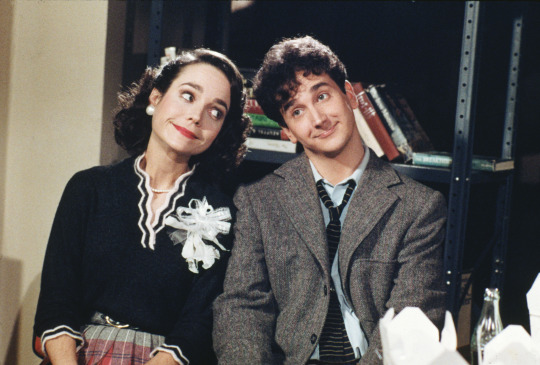
To hear Richard Benjamin tell it, MY FAVORITE YEAR was a charmed production. For his first film as a director, he had been looking for a comedy (“I’m just kind of bent that way,” he jokes) and the stars aligned to bring him a script that, he says, was everything he knew. He had Mel Brooks as the film’s guardian angel. He had a bona-fide movie star that his wife, Paula Prentiss, recommended after another actor regretfully declined the film’s plum role. And he heeded Carl Reiner, who gave him succinct advice about making a comedy: “Get funny people.”
Which he did. The film is character actor heaven, with Joseph Bologna, Anne de Salvo, Selma Diamond, Adolph Green, Basil Hoffman, Lainie Kazan and Bill Macy.
MY FAVORITE YEAR is set in the mid-1950s when television was live and comedy was king. Mark Linn-Baker stars as Benjy Stone, a young comedy writer on a variety show reminiscent of Your Show of Shows, where he ardently pursues the show’s not-amused production assistant (Jessica Harper). During one life-changing week, he is assigned to chaperone the show’s guest star, his idol, former swashbuckling screen hero, Alan Swann (Peter O’Toole in an Oscar-nominated performance), who has a penchant for drink, womanizing and otherwise behaving badly.
Benjamin spoke with TCM about casting O’Toole, trying to pin down Mel Brooks and why you should never end a comedy in a graveyard.
To quote Alan Swann’s great line, dying is easy, comedy is hard. With MY FAVORITE YEAR, you make it look so easy. How did the project come to you?
Paula and I were in New York. My agent, David Gersh, sent the script by Norman [Steinberg] and Dennis [Palumbo, credited as co-writer due to the Screen Writers Guild arbitration]. I remember reading it in the hotel room and as I finished, I said, ‘This is everything I know.’ I was in high school when Your Show of Shows was on. I would get on the phone with my friend Shelley Berger, who I am still close to, and we would do all these routines they had done on the show on Saturday night. I grew up loving Errol Flynn and those swashbuckling movies. I had also worked at 30 Rockefeller Plaza [the film’s setting] as an NBC page and guide, and I knew every inch of that place. [The script] was right up my alley, as they say.
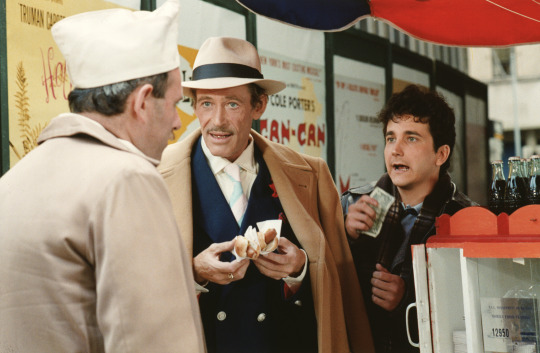
Brooksfilms produced the film, and Mel Brooks was a writer on Your Show of Shows. Did he serve as the film’s guardian angel or offer any input?
Guardian angel’s good. He kept saying he would give Norman and I two full days to sit down and go over the script to see if we could make it even funnier. The truth of the matter is that the script didn’t need much of anything, but he promised that. Trying to get Mel to stop moving is a feat. We went to his house, and he invited us in and then said he was going out. He said he had to walk the dog. Then he comes back, and he said he had to go, that there was a crisis at Fox. I said, ‘No there’s not,’ and he said, ‘Well, there could be.’ So, what he ended up giving us was two hours, but it was a great two hours. And the next thing you know, he was gone.
But Norman and I came up with one of the best jokes in the movie while we were standing in his driveway watching him drive away. It’s the one where Swann falls off the roof and plummets past the two elitist guys. And one says, ‘I think Alan Swann’s beneath us,’ and the other guy says, ‘Of course he’s beneath us, he’s an actor.’
I cannot imagine anyone but Peter O’Toole as Alan Swann. Was he the first choice?
Albert Finney had been offered the role, but he had not committed. He was up in Sausalito making SHOOT THE MOON [’82]. They told me I had to go up there and convince him to do the film; otherwise they couldn’t make the movie. The list of people M-G-M would go with was very short, because who are you going to believe with a sword in their hands? So, I’m on this mission, because if he says yes, I’m going to get to make a movie. We arranged to have lunch together. He’s completely charming. I get ready to ask the question – which could change my life, by the way: ‘Will you do it?’ He said, ‘Well…,’ and I could tell it was going to be a no. He thought the script was really good, but he had done two or three movies in a row and he said he wanted to get back to the theater. Then he said to me, ‘Why don’t you get O’Toole?’ He said, ‘We do this all the time. I turn something down, he does it, he turns something down, I do it.’ When I got back home, Paula who had made WHAT’S NEW PUSSYCAT? [’65] with Peter, said, ‘Get Peter. He is perfect for this.’ Finney said it, Paula said it. And I asked [co-producer] Michael Gruskoff if M-G-M would make the film with O’Toole, and Michael said yes.
What was the meeting with Peter like?
(Laughs) That meeting! That meeting was quite something. First of all, we couldn’t find him. We could tell we had the right person because the behavior was just like the character. He had a farm in Ireland with no phone. You had to call this pub to get a message to him. I called the pub and they said Peter wasn’t there. His agent didn’t know where he was. I called his manager and said, ‘We’re trying to find your client.’ He said, ‘He’s at the Beverly Wilshire Hotel. He’s been here for a week.’
So, I’m actually talking to Peter O’Toole, and he said he had heard about the project and to send him a script and we would get together the next day. I go over and there he is in a beautiful suite wearing a smoking jacket; he is the character. He said, ‘Here’s the thing…’ and I thought, ‘Here we go again.’ He said he liked it very much, but he hadn’t read the last ten pages and to please indulge him and he would call tomorrow. The next day, on the dot, he called and he said to turn to the last page of the script.
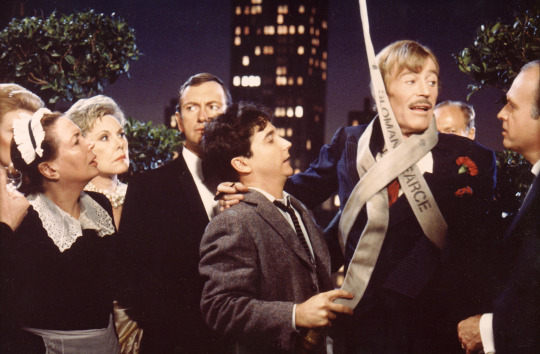
Now, in the original script, there’s a scene which I shot that would have played after what’s in the movie. It took place in a Hollywood cemetery, and Benjy is walking past the gravestones. He says in voiceover that Alan Swann made him promise he would do something on his birthday every year. Alan has passed away, and Benjy comes to his grave, kneels down and pours a bottle of Courvoisier over the tombstone. That’s what’s on the last page. Peter asked me to read the date that was on the tombstone. It was Aug. 2. He said, ‘Aug. 2 is my birthday; did you know that?’ I asked Norman if he knew that, and Norman said no, he had made it up. And Peter says, ‘Therefore, I must do the film.’
What happened to that scene?
I was terribly reluctant to take that out because Peter did the movie because of it. But people at M-G-M said I couldn’t end a comedy in a cemetery. We had two audience screenings, one with that ending and one without it. In the screening with it, the audience enjoyed the picture, but the scene put a pall over things. Then we had the screening without it and the audience was very enthusiastic and very up as they came out.
How did you find Mark Linn-Baker?
Our casting director Ellen Chenoweth said the first person to get was Mark Linn-Baker. Mark came in and read and was terrific. I said, ‘This is my first movie, I can’t cast the first person who walks in here.’ I saw maybe 25 to 35 more—some really good people—but she was right, so after all of that, I said to get him.
Peter and Mark had great chemistry.
They seemed to hit it off right away, but later, back in L.A. after we shot the long scene on the roof, which played like a mini-farce, Peter came up to me and said, ‘I like the lad, you cast him well.’
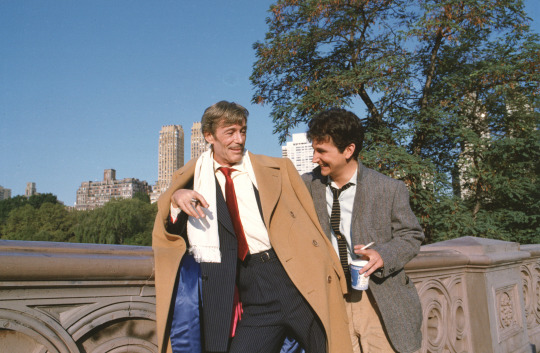
Was Peter game for the physical stunts?
I couldn’t stop him from doing them! The bathroom scene required him to fall headfirst into the wall. I came to him before we shot and I said, ‘The camera is so close, I can’t pad this wall.’ He said, ‘I was brought up in music hall. I can do this all day. Don’t concern yourself.’
Director Howard Hawks once said that a good movie was three or four good scenes and no bad scenes. I lose count watching MY FAVORITE YEAR of how many great scenes there are in it. Between those driven by comic banter, the TV sketches, the physical comedy scenes, the quieter romantic scenes and even the dramatic confrontations, did you have a favorite type to direct?
I can’t say there was a favorite. It’s all of a piece. I will tell you that one of the scenes I like is in the Stork Club and getting to do something that reminded me of all these kinds of wonderful comic movies I loved growing up. I do remember that one of the first things we shot was the scene in Central Park where Alan Swann mounts the horse. It just seemed to lack energy. And I was thinking, ‘I have to go tell Peter O’Toole that he has to pick up the pace and it has to be lighter.’ I went up to him and said, ‘It’s good, but…’ and before I could finish, he said, ‘You want it faster and funnier.’ I said, ‘You’ve got it,’ and he said, ‘And you shall have it.’ And I thought, ‘This directing thing is not so hard.’ (laughs)
Were there directors you worked with as an actor who particularly inspired you when you became a director? For example, you worked with one of the best, Mike Nichols.
Mike, yes. He directed me in the national company of Barefoot in the Park and [the film] CATCH-22 [’70]. Mike’s thing was he’d come up to you very quietly and say, ‘Just like in real life.’ That was his main thing. It meant that there should be no ‘acting’ here; your character responds to situations as they would in life. It’s like what [critic] Walter Kerr once said about Neil Simon’s jokes: They have the truth in them. This is what funny people know: You can’t try to get a laugh, because you won’t get it.
At one point, Alan Swann says that doing the TV show was the most fun and the hardest work since the world was young. Was that what making MY FAVORITE YEAR was like for you?
It was the most fun, there’s no question of that. It was a magical experience because of the screenplay and everyone involved. Everyone’s game came up because of Peter. You don’t need many takes with him, that’s for sure. But how all of this came about and got to the point where I would be offered this, and what has to happen in your life to come to that moment – you can’t make it up. And when that moment comes, you’re hopefully ready. I was really fortunate.
#Interview#Richard Benjamin#peter o'toole#Mel Brooks#comedy#old hollywood#new hollywood#cinema#Donald Leibenson
77 notes
·
View notes
Text
monthly movie highlight: august 2021

Play Girl (1941) dir. Frank Woodruff
Kay Francis plays a flighty, scheming gold-digger who at the decrepit age of 30 has become unable to attract men as she used to. As insane as it is to imagine someone turning down Kay Francis of all people, though this is one of her later ones. I am quite sure that this film was written specifically for her, but it oddly seems mean and punishing. There are various scenes where her speech impediment is mocked and she is made to seem like an old delusional fool for thinking she could seduce a younger man. What really stood out to me were the small moments where her character was allowed to be sad and vulnerable. Kay Francis for the most part stayed away from serious roles, she buoyed through her films with grace and modernity. She rarely did period pieces, was and has never been taken seriously as an actress, and is thought of as little more than a clothes horse. Yet I think the limitations of the studio system never allowed her to be viewed as a serious actress, and her roles reflect that.

The Green Knight (2021) dir. David Lowery
I really wanted to love this movie. It’s based on an Arthurian gender comedy and star Dev Patel, what more do you need? Unfortunately, this did not live up to my standards, which were already pretty low. The first half is pretty strong, it makes it clear that it is based on the story of the Green Knight but makes sure to stand apart from it and focuses on the magic, nature element of it. However, when the plot returns to the Green Knight, it falls apart. It becomes sloppy in a way that feels odd considering the sleek, dreamlike feel of the first half, and this is exemplified in the ending that felt weak. The more time passes, the more it bothers me.

I Married an Angel (1942) dir. W.S. Van Dyke, Roy Del Ruth
Can I start with this being one of my favorite classic Hollywood promotional shots? This movie is so weird and fun, it is the creme de la crop of the weird frothy MGM musicals of the ‘40s. I have to admit that Jeanette MacDonald is one of my favorite actresses. I find her to be a highly skilled actress and one that was held back by her typecasting, plus the fact that she worked under MGM. There is a scene in this film where she plays a moll, and she is so funny and sexy in the scene, it felt like she had returned to her pre-code roles. There are a lot of scenes in her filmography that make you realize that she is a better actress than MGM thought she was (her mad scene in Rose Marie shows a perfect blend of her opera and film acting).

Girl with a Pearl Earring (2003) dir. Peter Webber
As annoying as Scarlett Johansson is, she puts out a phenomenal performance every now and then. I was quite shocked that she hadn’t been nominated for an Academy Award for her performance in this - I know she was still very in her sexpot image, but I thought the Academy was past snubbing for that. (Sidenote, I learned that she was only nominated in 2020 for lead in Marriage Story and supporting in Jojo Rabbit, no surprise she didn’t win if her vote was spit, but that seems so insane to me considering her career started in the 90s.) Still, this film and its depictions of class and the balancing act of performing class during its period setting are phenomenal. I seriously considered buying an academic text on the film after I watch the film.

Penance (2013) dir. Kiyoshi Kurosawa
Guilt, remorse, and anger are constantly boiling to the surface in Penance. While I did find a majority of the plot very good, especially when it got to the final girl's story which was essentially a bloody soap opera. What I did not enjoy was the final twist in the story in regard to the murder being the girl's bio-dad. It felt unnecessary - if they wanted it to be the father, it should have just been the father. In fact, the guilt the mother carries would have been more impactful if there was an element of her knowing and ignoring the truth while having another child with her husband.
11 notes
·
View notes
Text
Ranking : David Lynch (1946-present)

Film is definitely an art, and yet, it seems to be distinct from other forms of visual art such as painting or sculpture. Perhaps that is what makes David Lynch such a fascinating director, as he has the ability to tap into the surreal stimulus often found in the most famous paintings and transform it into brain-bending moments on film. Whether it his fear-fueled fascination with fatherhood present in his debut film Eraserhead, his ruminations on Hollywood society present in Inland Empire, or any of the stopping points in-between, it’s safe to say that David Lynch sits in the rarified air of directors like Ingmar Bergman, Alejandro Jodorowsky and the other few who can turn film into something deeper, more visceral and more meaningful.
With one of the most unique collections of films credited to his name, including a couple of curveballs in the early portion of his career, ranking the films of David Lynch is as perplexing as it is entertaining... so, without further ado, we attempt to climb that hill. I’m not even going to pretend that I can break down all of the symbolism and meanings of these films, but I can give my honest opinion about them.
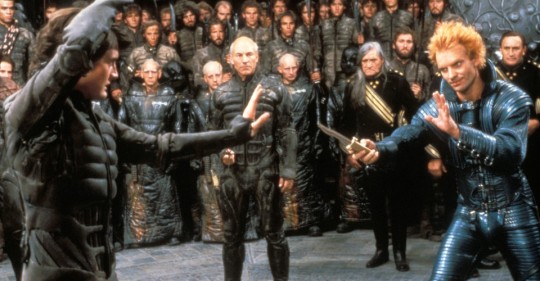
10. Dune (1984)
For a film that is supposed to be such a science-fiction gem, it’s a bit funny that nobody can seem to make a coherent, entertaining version of Dune. After nearly 15 years in pre-production hell (and three iconic names attached to versions of the production), the film landed in the laps of Dino De Laurentiis and Ridley Scott, but after another extended period delaying production, Scott bowed out, leaving the door open for David Lynch to step in. For what it’s worth, he did bring a huge list of names to the project, but the fact that the directing credit for Dune belongs to the throwaway pseudonym Alan Smithee should clue in any perceptive viewer that the project may not be one that Lynch cares to stand behind.
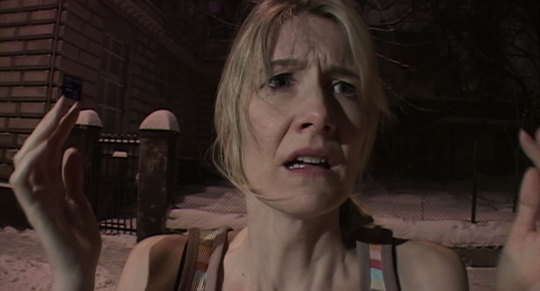
9. Inland Empire (2006)
David Lynch isn’t the type of director that revisit ground he’s already covered, which is what makes Inland Empire (the seemingly final film from Lynch) such a confusing choice. Had this film not been released after a five year gap between it and the stellar Mullholland Drive, another film that focuses on the dark underbelly of Hollywood, fame and the tolls of the acting craft, perhaps it would hit a little different to me. That’s not to say that the film isn’t good, as it is definitely a slight adjustment from the style that Lynch basically trademarked, but when a director like Lynch experiments on what feels like general principle, it makes experiments that feel like a step backward lose impact.

8. Lost Highway (1997)
Technically, you could count all of the Lynch “mystery” films as noir in some capacity, but Lost Highway feels like a direct skewing of what we know as the traditional noir structure. At its core, the film is a simple murder mystery, but it doesn’t take long for the Lynch signatures to begin appearing in every form from a mysterious, unnamed character to our protagonist literally changing into another person with no base explanation provided. Perhaps the latter choice was a look into split personalities and the disassociated nature that can come with brutal crimes... as I said before, I’m not here to try and decode the David Lynch mystery. While Lost Highway serves as a good entry point into the David Lynch catalog, it sits on the back half of the rankings due to no fault of its own... it’s more of a situation where the other mysteries are so stellar, that even the strange seems simplistic by comparison.
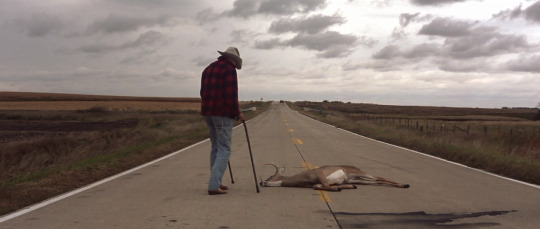
7. The Straight Story (1999)
If you played a game of “one of these things is not like the other” with the films of David Lynch, it would not be difficult to make a winning choice, as The Straight Story is clearly the most accessible and standard of all the Lynch fare. What the film lacks in oddness and style, however, is more than made up for in terms of heart and performance. The use of a lawnmower as the main source of travel allows for some beautiful landscape cinematography, and the sheer force of will exhibited by Richard Farnsworth pays off in spades when he is reunited with Harry Dean Stanton. If you’re looking for something creepy, eclectic and mind-warping from Lynch, there are plenty of other films to choose from, but if you are looking for an excuse to shed a tear or two, this is the film for you.
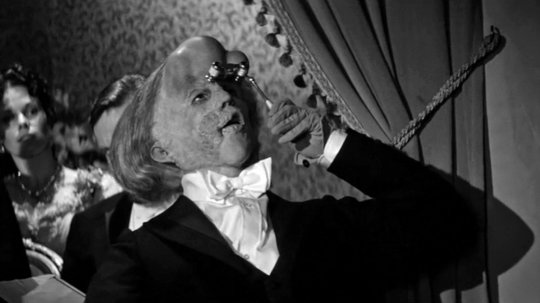
6. The Elephant Man (1980)
It’s funny to think that if not for The Straight Story, the Joseph Merrick biopic The Elephant Man would serve as the most normal film of the Lynch canon. This sophomore film dialed back on the abstractions present in Eraserhead, but it brought some extraordinary makeup and costuming to the table, not to mention it gifted viewers with a powerfully moving performance from John Hurt. Though memorable in its own right, the film really made its mark by tying Raging Bull at the 53rd Academy Awards, garnering eight nominations (and sadly losing in all categories, going home empty-handed). The backlash for the Academy’s lack of giving The Elephant Man special praise for its makeup effects also led to the creation of a Best Makeup award for the Oscars. It is quite possible that the combination of shock from Eraserhead in tandem with the skill and prowess shown in The Elephant Man opened all of the creative control doors for David Lynch, as not even Dune could derail his career and artistic oddness.

5. Blue Velvet (1986)
While Twin Peaks is where I first heard the name David Lynch, it was Blue Velvet where I first got a taste of why Lynch was held in such high regard. The suburban paradise presented in the opening credits is immediately shattered by the discovery of a random ear, and the weirdness rabbit-hole gets deeper and deeper from that point on. The classic look of the film stands in powerfully beautiful contrast to the extreme darkness of the narrative, and Dennis Hopper turned it all the way up to 11 for his performance in the film. If Lost Highway serves as the best introductory film for those curious about Lynch, then Blue Velvet serves as a good midpoint to determine how much weirdness, abrasiveness and shock you can handle in a Lynch film.
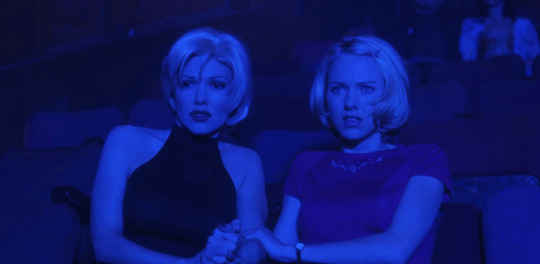
4. Mulholland Drive (2001)
I really and truly do not know where to begin with this insane rollercoaster ride of a film. The first time I watched this film, I thought I had everything figured out, every mystery solved and every bait and switch identified, but upon repeat viewings of Mullholland Drive, I’ve determined that I either had a brief moment of harmonic brilliance or I was fooling myself. The film makes sense at its root, if really and truly dissected, but when taken at face value and in real time, it’s almost impossible not to get completely lost in the sheer immersive nature of everything thrown at you. Naomi Watts is brilliant as the viewer guide through the film, and it’s good that she is so powerful in her lead role and guiding task, because Mullholland Drive is not afraid to get downright bonkers on more than one occasion. While films about the trappings of Hollywood and stardom are nothing new, I’m hard pressed to think of another film that approaches these in a manner even remotely close to that of Mullholland Drive.
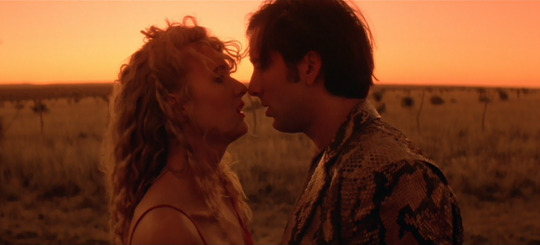
3. Wild at Heart (1990)
Quite possibly the most enjoyable of all the David Lynch films, despite some downright brutal moments of celebratory violence sprinkled throughout. The combination of Nicolas Cage and Laura Dern is nothing short of electric, and the presence of Willem Dafoe as antagonist is the perfect spark to ignite an already volatile mixture of leads. The energy level of this film starts on ten and only continues to rise as the film progresses. If/when I ever get the chance to program theater showings, I am putting this film on a double bill with Natural Born Killers immediately. While I can’t say that Wild at Heart is my favorite David Lynch film, I can say without a shadow of a doubt that it’s my favorite Lynch film to gush about with other fans.
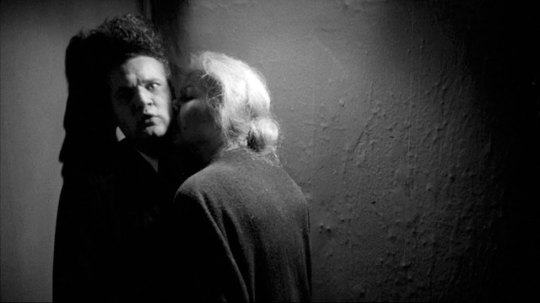
2. Eraserhead (1977)
More often than not, directors the caliber of David Lynch have stunning debut films to their name, and Lynch certainly exploded onto the scene with a gamebreaker in the form of Eraserhead. Upon first viewing, there is enough “WTF?!” going on to confuse most people, but for those brave enough to watch the film more than once, it becomes painfully obvious that all of the madness and shocking imagery on display is a clear metaphor for Lynch’s fear of fatherhood. The simple act of taking a fear that resonates with most humans and turning it into the equivalent of a black and white bad drug trip works perfectly, and Jack Nance’s iconic look and performance are almost recognizable enough to know without knowledge of the film. Eraserhead is one of those films that leaves you different than you were prior to watching it.
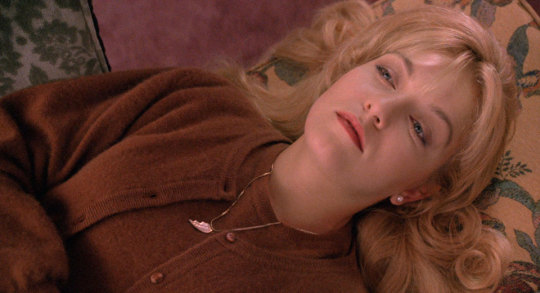
1. Twin Peaks : Fire Walk with Me (1992)
In all honesty, was there every any doubt that Twin Peaks : Fire Walk with Me wouldn’t be in the top spot? Of all the properties that the David Lynch name is connected to, none of them have even come remotely close to touching the sheer size of the lore and fandom that has emerged from this modern day masterpiece. The story of the high school princess with deep, dark secrets to hide is not new territory, but the way that Lynch handles it all with Twin Peaks takes the familiar to all new realms of weirdness, including the creation of iconic places and characters like the Black Lodge, the Log Lady, the production mistake that created the infamous Bob, and the eternally iconic Laura Palmer, and oh yeah, the film’s not half bad either. I doubt that David Lynch ever had any intention of reaching the heights of fame that Twin Peaks : Fire Walk with Me afforded him, but it would be dumb to think that he isn’t impressed with the magnitude of the world he created based on that single idea for a film.
#ChiefDoomsday#DOOMonFILM#DavidLynch#Eraserhead#TheElephantMan#Dune#BlueVelvet#WildAtHeart#TwinPeaksFireWalkWithMe#LostHighway#TheStraightStory#MullhollandDrive#InlandEmpire
23 notes
·
View notes
Text
LUCY SHUNS AUDITIONS
July 21, 1950

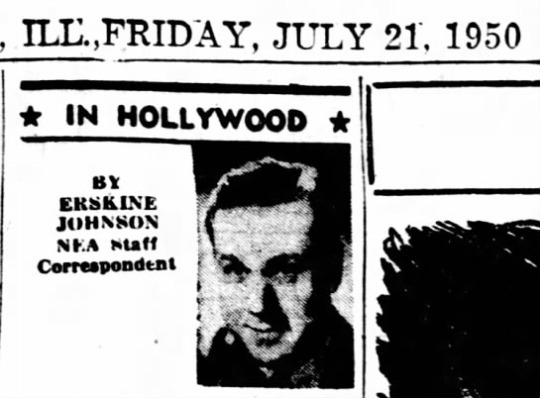
[In the below article, reprinted verbatim, Johnson writes using a lot of imagery and insider jargon. This sort of article was common in trade papers like Variety, but seems odd in a daily newspaper.]
Hollywood—(NEA) Lucille Ball slipped me the lowdown on her failure to pin to the canvas the dumb chick role in “Born Yesterday” and make it holler uncle. (1)
She’s got a touch of Francis the mule in her when it comes to auditions. (2)
Instead of scrimmaging for the role with Evelyn Keyes, Judy Holliday, Marie Wilson, Shelly Winters and Jan Sterling, (3) Lucille went bolting the other way.
The “let’s-see-if-you’re-it” boys pleaded and cajoled.
But Miss Anti-Auditions wasn’t having any of the competition, thank you.
“I figure if they want you, they want you,” Lucille plainspoke it. If you’ve got to read and test for it, to heck with it.’
She isn’t chronicled in Hollywood history, but once, badgered by her RKO bosses, Lucille went tripping over to David O. Selznick’s office for a whack at the Scarlett O’Hara role in “Gone With the Wind.”
That’s what curdled her in the first place.
“It was awful,’’ Lucille shudders. I was shaking all over when I hit Selznick’s office. My knees gave way. I did the whole audition in scrubwoman position. Selznick laughs and says thanks a lot. (4)
Judy Holliday landed the junkman’s doll role and Lucille grabbed a railroad ticket for a personal appearance tour with hubby Desi Arnaz. She strutted to Latin rhythms, swung a glittering purse in a manner dear to runaway girls and wisecracked for the customers. (5)
MIMICS OSCAR WINNER
At the last moment she nixed a dancing and singing routine. The star with the forest-fire hair shrugged:
“I decided it would be silly to compete with Grable.” (6)
A lot of movie queens laid in fresh supplies of smelling salts, ice beanies and copies of “Release From Nervous Tension” when word got around that Lucille was about to whoop it up on the six-a-day circuit. (7)
She’s a blister-raiser from way back and the air was shrill with ouches about a year ago when she whipped up an impression of an Academy Award winner.
But the girls can go back to worrying about other things—like shrinking from larger-than-life to television screen size.
Lucille didn’t let any “furriners” see the routine.
“It's for Hollywood only," she said. “I should take radio-active material on the road?”
Her Oscar-grabber routine is strictly for unreal anyhow, she says. and no blood relation to Bette Davis, Olivia de Havilland, Ingrid Bergman or any other Screen Duse. (8) She insisted:
“She's any movie star, even me. This character has to go up on that stage and act surprised. She’s only been rehearsing what she's going say flor eight weeks. So she says, ‘Ye gads, me? But I’m so unprepared. Really, I didn’t dream...”
Lucille is generally is as unflinching about the movie queen business as Pearl White was about onrushing trains. (9)
But her knees executed some wobbles that aren’t in Arthur Murray’s rhumba dance book when she checked into her first vaudeville dressing room. (10)
“Those stages—they’re so big.” she gasped. “Hey, I’d hate to get caught in the middle of one of those stages without bread and water.”
Lucille didn’t take any chances with out-of-town press interviews, either. “I once did a personal appearance tour with Maureen O'Hara and had to show up at a press party,” she grinned. (11)
My sinus - I just die from it - was acting up. The reporter next to me didn’t understand my puffed eyes and cold sores. He called Maureen a lady in his story. But he referred to me as a whisky tenor with red-runny eyes.”
Lucille’s brain cells work on direct current and she’s not one to make with the figure eights when a straight glide to home base would get her there quicker.
They still laugh about her exit line to Louis B. Mayer. (12) Mayer always referred to her as a thoroughbred and sometimes compared her to his famous horses. "Yes, and like your other nags, I'm leaving your stable," Lucille said when she decided to bow out of her contract.
She has high hopes for her new picture “The Fuller Brush Man.” Not that she enjoyed it: (13)
“Honey, this ones that I don t enjoy turn out be the best ones. This one put me in the hospital. My feet are still bandaged up. I’m a mess. No more physical-type pictures for me.”
# # #
FOOTNOTES FROM THE FUTURE
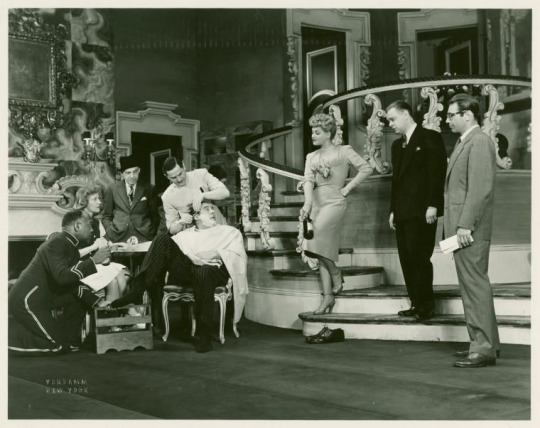
(1) The 1946 Broadway hit comedy Born Yesterday by Garsin Kanin was bought by Columbia Pictures. Things got complicated when its stage star, Judy Holliday, swore she would not do the film version. Columbia used this as fuel for publicity about who would win the role. Naturally, Lucille Ball was considered a top contender. As the article states, she was not eager, however, to prove her worth to the ‘let’s-see-if-you’re-it’ boys (aka producers). There was talk of Lucille performing the play in London, or summer stock, but her film contracts would not allow her time off for a stage run.
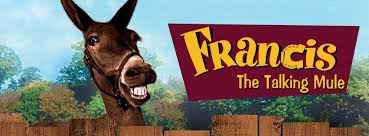
(2) Mules are supposedly notoriously stubborn animals - just like Lucy. Francis the Talking Mule was the star of seven popular Universal-International film comedies. The character originated in the 1946 novel Francis by David Stern III, adapting his own script for the first entry, simply titled Francis. On “I Love Lucy” Fred Mertz sometimes called Ethel “Francis” to indicate she was being stubborn about something.

(3) These were some of the Hollywood stars looking to play the part of Billie Dawn in the film Born Yesterday. Evelyn Keyes (1916 – 2008) was best known for playing Sue Ellen, Scarlett O’Hara’s kid sister, in Gone With The Wind (1939). Judy Holliday (1921-65), changed her mind about playing the role she originated on Broadway, but by then the casting net was cast, and she was just another performer on the short list. She eventually got the role, which defined her career. Marie Wilson (1916-72) was a zany comedic actress in the style of Gracie Burns. She was widely known as the star of radio and TV’s “My Friend Irma”. Shelley Winters (1920-2006) would be nominated for an Oscar the year after this article. She was adept at playing drama and comedy, and had a long-lasting career in Hollywood. She appeared on “Here’s Lucy” in 1968; Critics raved about her Jan Sterling’s portrayal of Billie Dawn in the Chicago touring company of Born Yesterday and Columbia brought her out to the West Coast to test for the film. At one point, she was actually announced to play the part but the role ultimately went to Holliday.
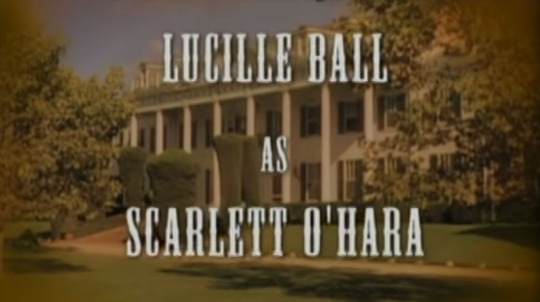
(4) Lucille Ball did indeed read (not screen test) for the role of Scarlet O’Hara, just like nearly all of the women in Hollywood in 1938. Ball told the story several times on television, each time with varying details, but probably most completely on “Bob Hope’s Unrehearsed Antics of The Stars” (1984).
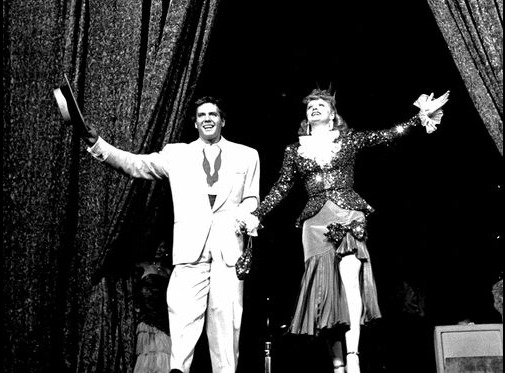
(5) This is a vivid description of the “Cuban Pete / Sally Sweet” portion of Lucy and Desi’s nightclub act to convince sponsors to buy them as a couple.
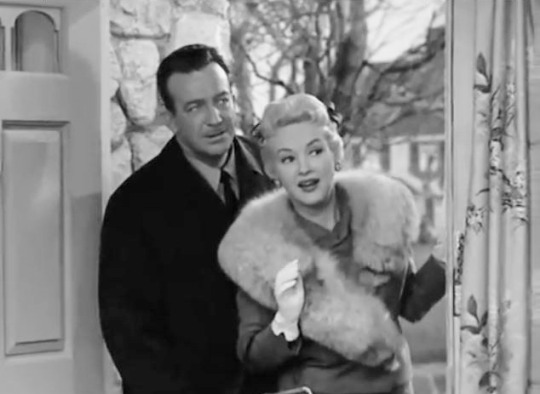
(6) Betty Grable (1916-73) was considered one of the most famous pin-up girls in history. In addition to her million dollar gams (legs), she could sing, dance, and act, too. She guest starred with her then-husband Harry James on “Lucy Wins A Racehorse”, an installment of “The Lucy-Desi Comedy Hour” aired on February 3, 1958.
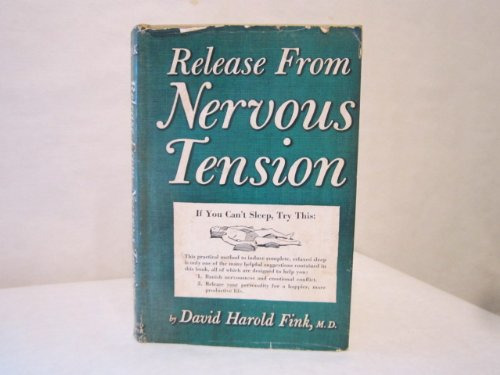
(7) “Release from Nervous Tension” was an actual best-selling book by Dr. David Harold Fink, published in 1950. Vaudeville and Burlesque shows were often known as the ‘six-a-day circuit’ because sometimes there would be as many as six performances of the same act in a day. Naturally, this did not apply to Lucy and Desi, who were big film and radio stars at the time.
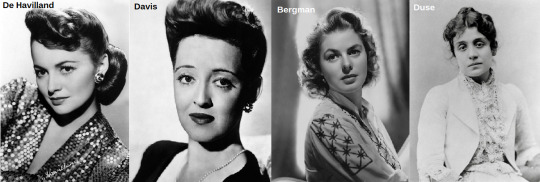
(8) These were some of Hollywood’s top-line dramatic actors. Bette Davis (1908-89) had won two Oscars, and was nominated for several others during her long career. She was supposed to guest-star on “The Lucy-Desi Comedy Hour” in “The Celebrity Next Door” in 1957 but dropped out after a horse-riding accident, leaving the role to Tallulah Bankhead; Olivia de Havilland (1916-2020) had also won two Oscars, the second the year this article was published. She was best remembered for playing Melanie Wilkes in Gone With The Wind (1939); Ingrid Bergman (1915-82) was a Swedish-born actress, who, by career’s end, had scored three Academy Awards. When Johnson talks about “any other screen Duse” he is referring to Eleonor Duse (1858-1924), an Italian-born stage actress known for her grand, dramatic style.
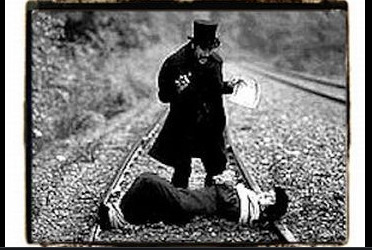
(9) Pearl White (1889-1938) was best known as the silent film actress who was tied to the railroad tracks in “The Perils of Pauline” (1914).
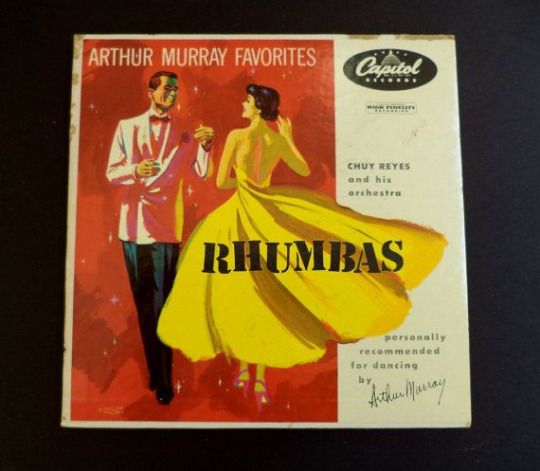
(10) Arthur Murray (1895-1991) was a ballroom dancer and businessman best known for the chain of dancing schools that bear his name. Murray was often a punchline on “I Love Lucy,” especially when the subject of dancing came up. The Rhumba was a Latin dance that took America by storm in the late 1940s and 1950. Desi Arnaz often called his orchestra a ‘rhumba band.’
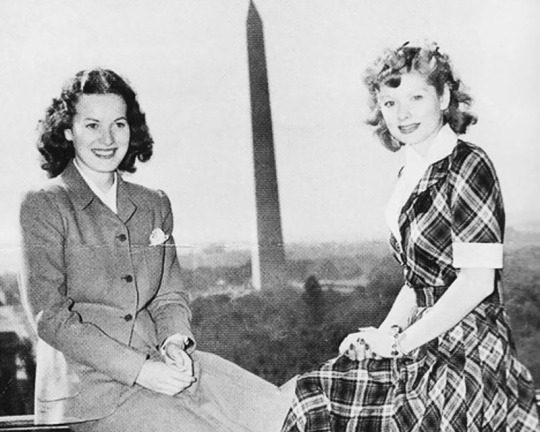
(11) Maureen O’Hara (1920-2015) and Lucille Ball had starred in Dance, Girl, Dance in 1940. As a result, the two went on a promotional tour that took them to several US cities, including the nation’s capitol.
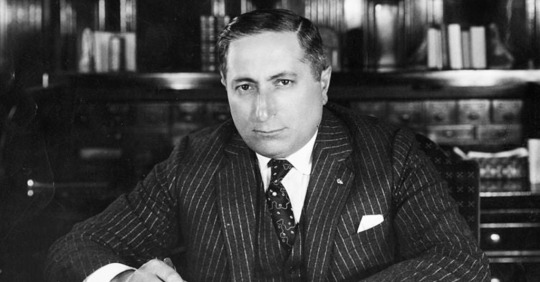
(12) Louis B. Meyer (1884-1957), along with Samuel Goldwyn and Marcus Loew of Metro Pictures, had formed a new motion picture company called Metro-Goldwyn-Mayer (MGM) in 1918. Over the next 25 years, MGM was "the Tiffany of the studios," producing more films and movie stars than any other studio in the world. Mayer became the highest-paid man in America, and one of the country's most successful horse breeders. Both he and MGM reached their peaks at the end of World War II, and Mayer was forced out in 1951, just a year after this article was written.
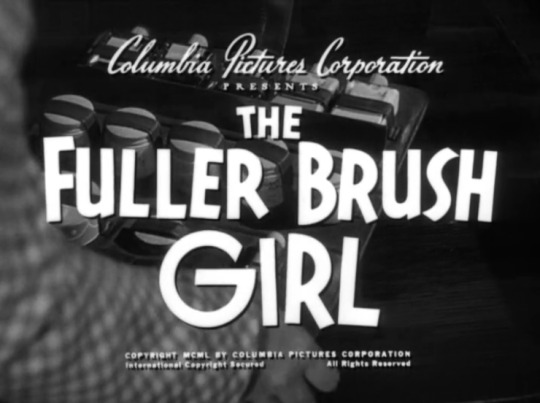
(13) Erskine Johnson gets the title wrong. Lucille had madeThe Fuller Brush Girl, a sequel to The Fuller Brush Man (1948). The film was released in mid-September 1950.
#Lucille Ball#Erskine Johnson#Newspaper#Fuller Brush Girl#Born Yesterday#Judy Holliday#MGM#Louis B. Mayer#Pearl White#Olivia DeHavilland#Bette Davis#Ingrid Bergman#Release from Nervous Tension#Eleonor Duse#Betty Grable#Desi Arnaz#Gone With The Wind
3 notes
·
View notes
Text
2020 Movie Odyssey Award for Best Original Song (final round)
(Yet again, tumblr has not fixed bullet indentations. So this post doesn’t look as clean on your dashboards.)
TAGGING (among others): @addaellis, @cokwong, @emilylime5, @halfwaythruthedark, @idontknowmuchaboutmovies, @introspectivemeltdown, @maximiliani, @memetoilet, @monkeysmadeofcheese, @myluckyerror, @plus-low-overthrow, @shootingstarvenator, @themusicmoviesportsguy, @theybecomestories, @umgeschrieben, @underblackwings, @voicetalentbrendan, @thewolfofelectricavenue, and @yellanimal.
I would also like to tag some followers/previous participants as well who I also would welcome to participate in this final round: @birdsongvelvet, @bitch-genius, @dog-of-ulthar, @loveless422, @lvl9gay, @mehetibel, @phendranaedge, @poncho-honcho, @sayaf, @shadesofhappy, @thethirdman8, @uncoolforelimb, and @wehadfacesthen. Regardless of whether you were tagged or not, all of my followers can participate if they wish.
Happy Holidays to all! After a fascinating preliminary round, now begins the final round to 2020's Movie Odyssey Award for Best Original Song (MOABOS). This is the eighth time it has been contested and the seventh year it has been open to involvement from family, friends, and tumblr followers. I begin every new year not knowing whether I will be able to share with all of you these songs and the movies they come from around November/December. So on the day that MOABOS becomes viable (usually around mid-year), it's a long stretch of anticipation to this point.
For those who have never participated in this before, my classic movie blog traditionally ends the year by honoring some of the best achievements from movies that I saw for the first time this calendar year (the "Movie Odyssey"; rewatches do not count) with an Oscar-like ceremony. I choose all the nominees and winners from each category, save one: Best Original Song. It is the only category I can think of that does not require you to watch several movies in their entirety. I know some of you wonder why I bother with this quixotic social experiment. But I have always considered it a sort of cinematic-musical thank-you for your moral support in various ways - in the hopes of introducing to all of you films and music you may not have otherwise encountered or sought. A small slice of the 2020 Movie Odyssey, so to speak.
This final will be contested by sixteen songs. As I've mentioned before, for the first time ever, there are no MOABOS entries originating from this year that made the competition - a MOABOS first. I have seen one 2020 film since the prelim (Wolfwalkers... at a drive-in mind you), but this entire final is one of yesteryear. Even without any 1930s songs, this year's final is probably the oldest on average. There are some very recognizable songs that made it straight to the final, bypassing the preliminary; those songs are contained within. Among them, a city anthem and a song that should be a city's anthem. Elsewhere, this is the first final to ever feature two classic Bollywood songs - but no classic Bollywood song has ever cracked the top ten. Elvis has three songs in this final, a MOABOS joint record along with Prince and the Bee Gees (both in 2016). But also appearing in multiple entries are Frank Sinatra and Liza Minnelli, Louis Armstrong and Billie Holiday. With five non-English-language songs in the final, this year’s final ties 2017 with the largest contingent of finalists not in the English language.
INSTRUCTIONS
Please rank (#1-16) your choices in order. The top ten songs will receive nominations. The tabulation method used in the preliminary round is being used for the final only as the second tiebreaker (the tabulation method that will be used principally for the final - aka "single transferable vote" - is described in the “read more” at the bottom). There is no minimum or maximum amount of songs you can rank, but because of the nature of single transferable vote, it is highly recommended to rank as many songs as possible, rather than only one or two. Those who rank fewer songs run a greater risk of their ballots being discarded in the later rounds of tabulation. Again, this is all described in the “read more”.
Please consider to the best of your ability: how musically interesting the song is (incl. and not limited to musical phrasing and orchestration); its lyrics; context within the film (contextual blurbs provided for every entry for those who haven't seen the films); choreography/dance direction (if applicable); and the song's cultural impact/life outside the film (if applicable, and, in my opinion, least important factor). Imperfections in audio and video quality may not be used against any song. I encourage you to send in comments and reactions with your rankings - it makes the process more enjoyable for you and myself!
The deadline for submission is Thursday, December 31 at 8 PM Pacific Time. That is 6 PM Hawaii/Aleutian Time / 10 PM Central / 11 PM Eastern. That deadline is also Friday, January 1 at 2 AM GMT / 3 AM CET / 4 AM EET. This deadline has been pushed back two consecutive times due to a sizable non-response rate - but I very much do not want to do so again.
I have compiled most of this final round's songs into this YouTube playlist. Please note that neither of Kaagaz Ke Phool’s two songs are contained in the playlist. You will need to access them using their respective links.
Enjoy the music! Feel free to listen as many times as you need, and I hope you discover music and movies you may have never otherwise heard of that you find fascinating. The following is formatted... ("Song title", composer and lyricist, film title):
2020 MOVIE ODYSSEY AWARD FOR BEST ORIGINAL SONG – FINAL ROUND
“Angela”, music and lyrics by José Feliciano and Janna Merlyn Feliciano, Aaron Loves Angela (1975)
Performed by José Feliciano
(English-language version) / (Spanish single version)
Played over the opening credits to this teenage drama that is partly a blaxploitation film, partly an interracial coming-of-age romance. The movie wasn't a hit, but the Spanish-language version of this song was received well in Latin America.
“Blue Shadows on the Trail”, music and lyrics by Eliot Daniel and Johnny Lange, Melody Time (1948)
Performed by Roy Rogers and the Sons of the Pioneers
This is the introductory song to the final segment of Melody Time. That segment is dedicated to the legend of Pecos Bill, and this atmospheric song leads into the telling of that story.
“Can’t Help Falling in Love”, music and lyrics by Hugo Peretti, Luigi Creatore, and George David Weiss, Blue Hawaii (1961)
Performed by Elvis Presley
(film version) / (single version)
Chadwick "Chad" Gates (Elvis) has just returned to his home state of Hawai'i after a stint in the Army. Not wanting to work on his father's pineapple plantation (seriously), he rekindles his relationship with his girlfriend, Maile (Joan Blackman). This song is sung as an accompaniment to a music box he gives to Maile's grandmother (Flora Kaai Hayes, a former Hawaiian Territorial Representative to the U.S. House). This song is among Elvis' best-known and most widely-covered.
“Dekhi Zamaane Ki Yaari / Bichhde Sabhi Baari Baari”, music by S.D. Burman, lyrics by Kaifi Azmi, Kaagaz Ke Phool (1959, India)
Performed by Mohammad Rafi (dubbing Guru Dutt)
Lyrics in Hindi - roughly, "I Have Seen How Deeply Friendship Lies / I Have Seen People Abandon Me One by One"
Part 1 (3:44-8:27) / Part 2 (2:16:29-2:20:42)
Make sure to turn on the video’s English captions
In this romantic tragedy, Suresh Sinha (Dutt) is a washed-up director looking back on his life. In the first part, the song leads into the rest of the film - which is almost entirely a flashback. In brief, Suresh is unhappily married to a woman whose in-laws look down on him because, to them, working in films is contemptible to their social class. Suresh meets a woman, Shanti (Waheeda Rehman), on accident and she is soon cast as the lead for his next film. They fall in love, but it is never consummated for various reasons. Eventually, his career crashes after a box office bomb and her career is ascendant. Leading into the second part of the song, Suresh is penniless and working as an extra at the movie studio. Shanti recognizes him, wants to help, but he refuses to revive his career on the back of her success. Kaagaz Ke Phool has elements of autobiography, and Suresh's fate has parallels with what happened to Dutt after this film was released.
“(Do You Know What It Means to Miss) New Orleans”, music by Louis Alter, lyrics by Edgar De Lange, New Orleans (1947)
Initially performed by Billie Holiday and Louis Armstrong and his band; reprised by various
(initial film performance) / (Louis Armstrong single version)
Endie (Holiday in her only appearance in a feature film) is a maid to the affluent Smith family, whose matriarch looks down on jazz as a disreputable genre of music. In secret, Endie frequents a gambling and jazz establishment in the historic Storyville district of New Orleans and performs here with Louis Armstrong (playing himself) and others when she gets the chance. The matriarch's daughter (Dorothy Patrick), an classical operatic soprano, is transfixed by this new music she has never heard before.
“ Exsultate Justi”, music and lyrics by John Williams, Empire of the Sun (1987)
Performed by orchestra and chorus under the direction of Williams
Lyrics in Latin
In this historical epic, affluent British school boy Jamie Graham (a young Christian Bale) is living with his parents in Shanghai when the Japanese invade. Jamie is separated from his parents and placed in an internment camp. Soon before the end of WWII, the prisoners are moved elsewhere, but Jamie hides and stays put. This song plays as Jamie bikes around the empty camp and continues to play as he encounters liberating U.S. troops. Jamie is dirty and malnourished when found; one can argue that this song is used ironically. It plays once more over the end credits. "Exsultate Justi" is a variation on a theme John Williams develops over the course of the film and harkens back to Jamie's past, attending Anglican services with parents.
“Farewell to Storyville", music by Louis Alter, lyrics by Edgar De Lange, New Orleans (1947)
Performed by Louis Armstrong and his band, Billie Holiday, and company
In New Orleans, the Storyville district was a den of drinking, gambling, jazz, and prostitution. The district was the home to a heavily black populace. The U.S. military, about to establish a Naval base nearby, forces the city to close the district for good. This song is a swinging dirge to a center of jazz - a musical genre looked down upon by many of the city's upper-class whites due to its ties (real and imagined) to crime.
“Happy Endings", music by John Kander, lyrics by Fred Ebb, New York, New York (1977)
Performed by Liza Minnelli and company (that's Jack Haley - who played the Tin Man and was, at the time, Minnelli's father-in-law - roughly seven minutes in)
(use in film) / (soundtrack version)
It is highly recommended one sees how this song is used in the film. Bear with me: this song is part of a movie within a movie. Within that movie within a movie, there is another movie. "Happy Endings" is the title end song to a film called Happy Endings within New York, New York. Singer Francine Evans (Liza Minnelli) has made it big as a recording artist and caps off her hit film, Happy Endings, with this song. We see Francine's ex, played by Robert De Niro, in the audience as the film ends. "Happy Endings" is a homage/deconstruction to midcentury Metro-Goldwyn-Mayer (MGM) musicals. It serves the film as "The Broadway Melody" does to Singin' in the Rain (1952) or the 17-minute ballet does to conclude An American in Paris (1951).
“Here They Come (From All Over the World)", music and lyrics by P.F. Sloan and Steve Barri, The T.A.M.I. Show (1964)
Performed by Jan and Dean
The link above provides the entire film. You only need to watch from 0:00-4:11. If you like music from this era or want to hear more, this film is highly, highly recommended.
This is the opening credits song to a concert film recorded over two days in Santa Monica, California on October 28 and 29, 1964. The Teenage Awards Music International (T.A.M.I. - yes, I know it's an awkward name) Show included many of the most popular musical stars of that time - almost all of them name-dropped in this song. Jan and Dean, a surf music duo, served as hosts (and performed during) the show. You folks are lucky that this is the only original song from this film!
“Is There Still Anything That Love Can Do?", music and lyrics by Yôjirô Noda, Weathering with You (2019, Japan)
Performed by RADWIMPS
Lyrics in Japanese (translation)
Weathering with You is a romantic fantasy anime about a high school boy who runs away from his rural home to Tokyo, where he meets a girl who can manipulate the weather. It has been inexplicably raining for weeks without interruption in Tokyo, so they form a business to help clear the inclement weather for special events. The melody of this song is heard throughout the film's score. It does not appear with lyrics until late in the film. The song is played under the boy's seemingly impossible attempt to save her from an unwilling human sacrifice.
There is so much plot in this damn film (it's all Makoto Shinkai's fault) - I can't explain the context of the song or this movie in a reasonable amount of space.
“Moonlight Swim”, music by Ben Weisman, lyrics by Sylvia Dee, Blue Hawaii (1961)
Performed by Elvis Presley
In a musical packed end-to-end with songs, Chadwick "Chad" Gates (Elvis) has taken a job with a tour guide agency. On his first day, he drives his first clients - a school teacher (who not so secretly is attracted to Chad) and four teenagers (one of whom becomes smitten) - to their destination.
“Personality”, music by Jimmy Van Heusen, lyrics by Johnny Burke, Road to Utopia (1946)
Performed by Dorothy Lamour
(in-film performance) / (live radio performance)
In the fourth film of the Road to... comedy series, Bob Hope and Bing Crosby's characters have just overpowered two Alaskan thugs with a history of murderous violence. As they enter a saloon dressed up as those two thugs, all of the patrons - in a town that only knows the thugs by reputation - shut up in terror. They are treated to a performance by Sal (Lamour), who is trying to find a map of a gold mine that the real outlaws supposedly have. A visual narrator (Robert Benchley) interrupts the scene before the song briefly.
“Please Don’t Stop Loving Me”, music and lyrics by Joy Byers, Frankie and Johnny (1966)
Performed by Elvis Presley
(in-film performance) / (single version)
Johnny (Elvis) and girlfriend Frankie (Donna Douglas) work on a Mississippi River riverboat as performers. Johnny is addicted to gambling and believes that another woman is spurring on his recent run of good luck. During a fit of jealousy-as-acting, Frankie accidentally shoots Johnny during a bit of musical theater (someone switched out the blanks for real bullets). This song occurs after Johnny has recovered from the accident.
“Theme from New York, New York”, music by John Kander, lyrics by Fred Ebb, New York, New York (1977)
Performed by Liza Minnelli
(in-film performance) / (Frank Sinatra single)
For most of the film, saxophone player Jimmy Doyle (Robert De Niro) is trying to compose a song but cannot figure out the lyrics (this plays out as a subplot). His eventual girlfriend/later ex, Francine Evans (Minnelli) provides said lyrics. Some time well after they have broken up, he finds her singing this song - which he previously brought to the top of the jazz charts - in the nightclub where they first met. This film flopped (musical movies were out of fashion by the mid-'70s, and a musical didn't seem "on brand" for director Martin Scorsese). But the Frank Sinatra single popularized this song, and it has been used in many venues of popular culture.
“Waqt Ne Kiya Kya Haseen Sitam”, music and lyrics by S.D. Burman, Kaagaz Ke Phool (1959, India)
Performed by Geeta Dutt (dubbing Waheeda Rehman)
Lyrics in Hindi - roughly, "Time Has Inflicted Such Sweet Cruelty On Us"
Song begins at 1:03:31 and ends at 1:07:51
Make sure to turn on the video’s English captions
In this romantic tragedy told in flashback, Suresh Sinha (Guru Dutt) is a director looking back on his life. Suresh is unhappily married to a woman whose in-laws look down on him because, to them, working in films is contemptible to their social class. Suresh meets a woman, Shanti (Waheeda Rehman), on accident and she is soon cast as the lead for his next film. They fall in love, but it is never consummated for various reasons. This song is the most explicit statement of that love in this film. How much of the scene's set-up is observable by the characters is up to the viewer's interpretation.
“You Make Me Feel So Young”, music by Josef Myrow, lyrics by Mack Gordon, Three Little Girls in Blue (1946)
Performed by Del Porter (dubbing Charles Smith) and Carol Stewart (dubbing Vera-Ellen)
(use in film) / (Frank Sinatra cover)
In this rarely-seen musical (*insert plea to Disney to restore the massive 20th Century Fox catalogue they now own and are almost certainly neglecting*), three chicken farmer sisters decide to travel to Atlantic City in hopes of marrying a rich husband when they learn their aunt's inheritance is not nearly as much as they want. There, youngest sister Myra (Vera-Ellen) - despite the sisters' original intentions of marrying men of wealth - becomes involved with a waiter named Mike (Charles Smith). They go on a date, and they sing this song. A somewhat overly-literal fantastical dancing sequence ensues, complete with Vera-Ellen's dancing skills. This song was popularized by Frank Sinatra years later and has long enjoyed status as a big band/jazz standard.
Contact me however you wish if you have questions or comments regarding MOABOS' processes or something specific about a song or a few. Please let me know as soon as possible if you are having difficulty accessing one of the songs (especially if it is region-locked) or if there is an error in the playlist.
Once more, I thank you all for your support for the Movie Odyssey, the blog, and for me personally - no matter how long I’ve known you or in what capacity. There are no hard feelings if you cannot get to this, although I will be checking in as the deadlines get close. Please wear a mask. Practice social distancing. We'll see each other again on the other side of this pandemic.
TABULATION
The winner is determined by a process distinct from the preliminary round. For the final, the winner is chosen by the process known as single transferable vote (the Academy Awards uses this method to choose a Best Picture winner, visually represented here - you should really watch this video if the below doesn’t make sense… which it probably won’t):
All #1 picks from all voters are tabulated. A song needs more than half of all aggregate votes to win (50% of all votes plus one… i.e. if there are thirty respondents, sixteen #1 votes are needed to win on the first count).
If there is no winner after the first count (as is most likely), the song(s) with the fewest #1 votes or points is/are eliminated. Placement will be determined by the tiebreakers described below. Then, we look at the ballots of those who voted for the most recently-eliminated song(s). Their votes then go to the highest-remaining and non-eliminated song on their ballot.
The process described in step #2 repeats until one song has secured 50% plus one of all votes. We keep eliminating nominees and transfer votes to the highest-ranked, non-eliminated song on each ballot. NOTE: It is possible after several rounds of counting that respondents who did not entirely fill in their ballots will have wasted their votes at the end of the process. For example, if a person voted the second-to-last place song as their #1, ranked no other songs, and the count has exceeded two rounds, their ballot is discarded (lowering the vote threshold needed to win), and they have no say in which song ultimately is the winner.
A song wins when it reaches more than fifty percent of all #1 and re-distributed votes.
Tiebreakers: 1) first song to receive 50% plus one of all #1 and transferred votes; 2) total points earned (this was the first tiebreaker in the preliminary round); 3) total #1 votes; 4) average placement on my ballot and my sister’s ballot; 5) tie declared
Previous years’ results for reference:
2013 final
2014 final (input from family and friends began this year)
2015 final
2016 prelim / final
2017 prelim / final
2018 prelim / final
2019 prelim / final
6 notes
·
View notes
Text
The Rosscars 2020
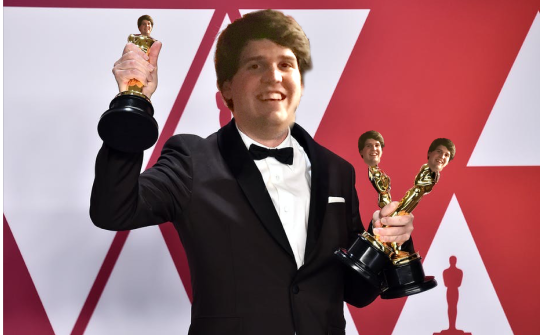
Wow. It’s that time of year again, only this time it’s different because it’s on a blog that no one will read! (hold for applause) Welcome to the first annual online publication for the Rosscars (hold for applause while the reader acknowledges how positively droll it is that I combined my name with “Oscars”). Who can forget such indelible Rosscar memories like when Steven Soderbergh surprised us all and won Best Director for Out of Sight or Bill Irwin’s beautiful speech upon winning Best Supporting Actor for Rachel Getting Married?! The Rosscars mean something different to everyone, but we all know that they mean quality choices made by a committee of one schmuck. This year’s Rosscars are bizarre because in an effort to be more like the Academy guidelines, film’s nominated have been released between January 1, 2020 and February 28, 2021. As usual, theatrical windows be damned, streamers are welcome. Of course, I have my gripes. I like categorizing movies by release year – specifically, when they become available to the plain old public like yours truly – not at festivals, limited runs in NYC and LA. Well, the Oscars are still weeks away and I feel like everybody wants to forget about last year and move onto this one that we’re already three months into - So here are my awards for the films, performers, and craftspeople that stood out in a pretty exceptional year for movies even though distribution was stranger than ever.
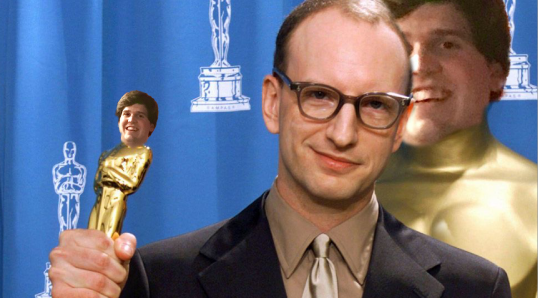
**A few caveats and guidelines to Rosscar newcomers (which I imagine is just a formality since we all know the Rosscars so well)**
The rules and categories are a little different around here. First, not every category is honored directly. That’s for a few reasons, chiefly that I don’t feel qualified to reward the technical categories properly – I suppose I should say that I feel less qualified to do so than the “above the line” categories. In keeping with the Academy standard, there are five nominees in each category, except for Best Picture, Best Non-Fiction/Documentary Feature, and Best Ensemble Cast which allow up to ten. Every category, save those three, will have the possibility of honorable mentions, because I want to highlight some things that just barely missed the cut. The narrowing down of a lot of these categories was awfully tough.
Nominees are listed alphabetically, and the winners are in bold and italics.
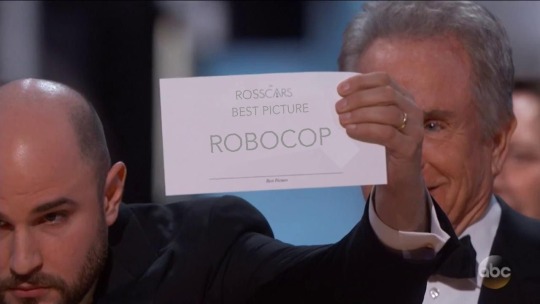
Also, it’s important to keep in mind that I couldn’t see everything (this isn’t a job and it’s still $20 to rent The Father, y’all) and that these are just the opinions of one (self-described) “bozo on the internet.” If you’re a reader and have different picks, feel free to share!
Special Commendations for some things that I want to recognize:
• Ludwig Goransson for his Tenet score which is an absolute banger
• The costumes of Emma. (Alexandra Byrne), Ma Rainey’s Black Bottom (Ann Roth), and Small Axe (Jaqueline Durran, Sinéad Kidao, and Lisa Duncan) all struck me as exceptional
• Trent Reznor and Atticus Ross with their scores for both Soul and Mank. Crazy that Pixar is working with the guy who made “Closer”
• The cinematography of Da 5 Bloods (Newton Thomas Sigel), First Cow (Christopher Blauvelt), Beanpole (Kseniya Sereda), and A White, White Day (Maria von Hausswolff)
The Rosscars red carpet was, as usual, a bizarre affair. People filed into the theater and it seemed like the only encounters were awkward ones. Vin Diesel showed up in character as Bloodshot, Aaron Sorkin started getting really verbose about what a lovely night it was, and it became clear that most of the celebrities in attendance didn’t read their invitations closely enough to realize that this was not, in fact, the Academy Awards.
Everyone’s seated, and the show is under way. After a medley about the nominees this year by Common and Seth McFarlane that was more corny but clever than it was funny, the first official category is here, and the presenter is none other than... Ross!
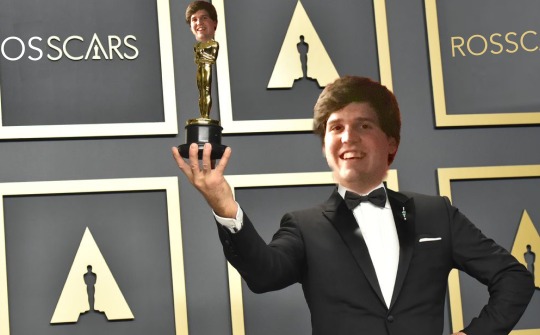
Best Supporting Actor:
1. Chadwick Boseman for Da 5 Bloods
2. Matthew Macfadyen for The Assistant
3. Jesse Plemmons for Judas and the Black Messiah
4. Paul Raci for Sound of Metal
5. Glynn Turman for Ma Rainey’s Black Bottom
Honorable Mentions:
• Lucas Hedges for Let Them All Talk
• Orion Lee for First Cow
• Bill Murray for On the Rocks

Best Supporting Actress:
1. Vanessa Bayer for Barb and Star Go to Vista Del Mar
2. Candice Bergen for Let Them All Talk
3. Gina Rodriguez for Kajillionaire
4. Amanda Seyfried for Mank
5. Yuon Yuh-jung for Minari
Honorable Mentions:
• Jane Adams for She Dies Tomorrow
• Charin Alvarez for Saint Frances
• Talia Ryder for Never Rarely Sometimes Always
• Debra Winger for Kajillionaire

Everyone loves a montage. The audience gets comfortable in their seats as the video screens start to show a montage of some of the most famous moments from Hollywood’s most magical movies. Fred Astaire and Ginger Rogers waltz, gliding across a dance floor like two hovering angels. There’s a clip of Leo declaring himself king of the world in Titanic, the flying bicycles in ET, Bogart stares longingly into Bacall’s eyes, and then there’s some scene where Tom Cruise rides a motorcycle from 2010′s Knight and Day. The audience all seems confused how that last one got in there. The John Williams music swells as little Kevin McAllister screams when puts on aftershave. We see clips of Robert De Niro in Taxi Driver, Carrie Fisher’s Princess Leia embrace Harrison Ford’s Han Solo, Bruce Lee smoothly declares that boards don’t hit back and... wait... was that a clip from Michel Gondry’s Green Hornet with Seth Rogen? And that’s a clip from What Happens in Vegas... Bad Teacher... Vanilla Sky... Shrek 2... Any Given Sunday... Everyone is flummoxed. The last clip fades out and a sole editing credit appears: Cameron Diaz. The lights come up and there’s some applause, but mostly confused murmurs.
The ceremony has had a bit of a misstep, but nothing it can’t recover from, especially as the next category is announced over the PA, and it looks like the presenter is... Ross!
Best Ensemble Cast:
1. Bacurau
2. Da 5 Bloods
3. Kajillionaire
4. Let Them All Talk
5. Ma Rainey’s Black Bottom
6. Minari
7. Nomadland
8. Pieces of a Woman
9. Small Axe

Best Original Screenplay:
1. Danny Bilson and Paul Dameo & Spike Lee and Kevin Wilmott for Da 5 Bloods
2. Lee Isaac Chung for Minari
3. Brandon Cronenberg for Possessor
4. Sean Durkin for The Nest
5. Kleber Mendonça Filho and Juliano Dornelles for Bacurau
Honorable Mentions – a very difficult task to weed this down to five.
• Shaka King and Will Berson for Judas and the Black Messiah, from a story by Kenny and Keith Lucas
• Steve McQueen, Alastair Siddons, and Courttia Newland for Small Axe
• Kelly O'Sullivan for Saint Frances
• Thomas Vinterberg and Tobias Lindholm for Another Round

Best Actor:
1. Ben Affleck for The Way Back
2. Chadwick Boseman for Ma Rainey’s Black Bottom
3. Delroy Lindo for Da 5 Bloods
4. John Magaro for First Cow
5. Mads Mikkelsen for Another Round
Honorable Mentions:
• Riz Ahmed for Sound of Metal
• John Boyega for Small Axe
• Daniel Kaluuya for Judas and the Black Messiah
• Hugh Jackman for Bad Education
• Ingvar Eggert Sigurðsson for A White, White Day
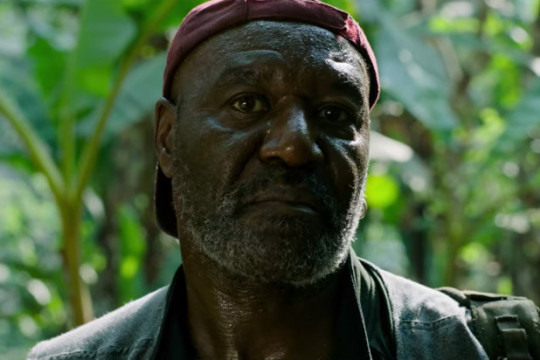
We have a break in the action and it looks like Darius Rucker has showed up to perform what he would have nominated for Best Original Song. The crowd is absolutely furious as he starts playing a song that apparently was in Trial of the Chicago Seven. An ocean of sonorous boos and curses overtakes the the once docile crowd. The Rock just ripped his chair from out of the ground. Jane Lynch somehow smuggled in a civil war era flintlock pistol that she’s now pointing at the stage! Suddenly, the crowd unifies around what started as a confident chant of one lone audience member - John C Reilly. It’s growing... Ja Ja Ding Dong, Ja Ja Ding Dong, Ja Ja Ding Dong - it’s like the macabre circus performers from Tod Browning’s Freaks, but instead of chanting “Gooble Gobble” they’re clearly pining for Darius to change his tune to the silly and delightful jam from Eurovision Song Contest: The Story of Fire Saga. Darius, scared for his life, leaves the stage, but here come Will Ferrell and Rachel McAdams to deliver the goods. Busy Philips and Michelle Williams burst into tears. Tom Hanks nods in approval. A segment saved by brave artists placating a toxic group of fans... we’ve just witnessed a live version of the Snyder Cut, folks.
Jack Nicholson seems completely unfazed, giving a thumbs up to the camera and blowing a kiss to the next presenter. Coming to the stage is... Ross... again...
Best Actress:
1. Jessie Buckley for i’m thinking of ending things
2. Carrie Coon for The Nest
3. Han Ye-ri for Minari
4. Sidney Flanagan for Never Rarely Sometimes Always
5. Vasilisa Perelygina for Beanpole
Honorable Mentions – these cuts were especially painful
• Haley Bennet for Swallow
• Morfydd Clark for Saint Maud
• Frances McDormand for Nomadland
• Christin Milioti for Palm Springs
• Geraldine Viswanathan for Bad Education
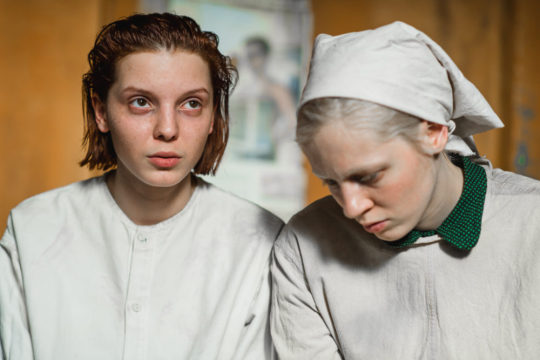
Best Adapted Screenplay:
1. Charlie Kaufman for i'm thinking of ending things from Iain Reed's novel
2. Sarah Gubbins for Shirley from Susan Scarf Merrell's novel
3. Kelly Reichardt and John Raymond for First Cow
4. Simon Rich for American Pickle from his short story "Sell Out"
5. Mike Makowsky for Bad Education from Robert Kolker's "The Bad Superintendent"

Best Non-Fiction/Documentary Feature:
1. Boys State
2. Collective
3. David Byrne’s American Utopia
4. Dick Johnson is Dead
5. Feels Good Man
6. In & Of Itself
7. The Painter and the Thief
8. Time

Jimmy Fallon has come out on stage to do a bit about the pandemic and watching movies at home. People are just absolutely not having it. He tries not to laugh at his own jokes while doing what I guess is technically a pretty good impression of Dr. Fauci interviewing James Corden as Martin Scorsese (the less said of this impression, the better) on what is or isn’t cinema. The bit doesn’t track and Fallon is absolutely tanking. The producers cut away from the stage to spare the viewers at home from this monstrosity. We see crowd shots of Millie Bobby Brown shaking her head in dismay, Colin Firth is simultaneously grimacing and trying to stave off laughter, Cynthia Erivo is texting, and director Tom Hooper is taking notes for his next film. Corden yells, “Carpool Karaoke! Remember?!” Ron Howard has fainted. This thing is almost completely off the rails.
Coming back to the stage is the next presenter, a clearly embarrassed... Ross! He’s in a total flop sweat, but stumbles his way through a joke about how Fallon should try co-hosting the Oscars with James Franco sometime. There are scant chuckles throughout a crowd that mostly just wants to see who won and go home.
Best Director:
1. Christopher Nolan for Tenet
2. Spike Lee for Da 5 Bloods
3. Steve McQueen for Small Axe
4. Kelly Reichardt for First Cow
5. Chloé Zhao for Nomadland
Honorable Mentions:
• Kitty Green for The Assistant
• Eliza Hittman for Never Rarely Sometimes Always
• Charlie Kaufman for i'm thinking of ending things
• Thomas Vinterberg for Another Round

Best Picture
1. Bacurau
2. Barb and Star Go to Vista Del Mar
3. Da 5 Bloods
4. First Cow
5. i'm thinking of ending things
6. Judas and the Black Messiah
7. Never Rarely Sometimes Always
8. Nomadland
9. Small Axe
10. Tenet
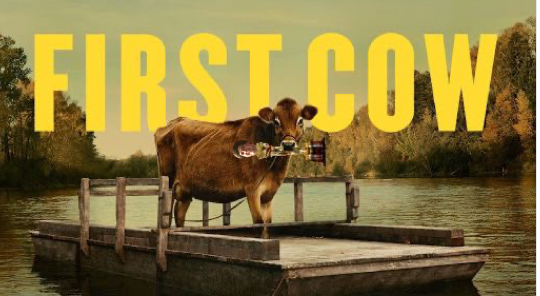
Accepting the award for best picture is none other than Eve, the cow actor who played the titular First Cow! The audience is enamored with how graceful she looks in her cow gown, and her speech, though indecipherable, is likely simple, observational, and deeply profound for those who speak cow.
Wow, what a ceremony! Hearts were broken, property was damaged, dreams were fulfilled... blood was shed? Damn it, Meryl Streep came in and mugged Charlie Kaufman before absconding with the trophy. Oddly, she’s a previous winner, so the attack isn’t out of need for hardware. People are reading through articles about production on Adaptation for potential motives. Streep made time for a photo opportunity, but remains at large.
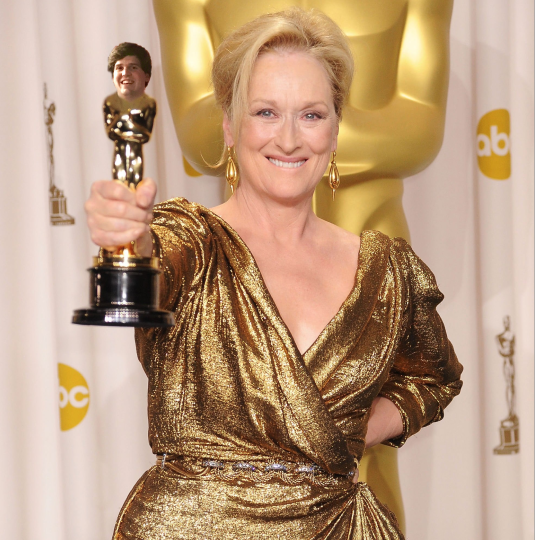
I could go on ad infinitum about all of these nominees and winners themselves and why they did or didn’t make the cut, but that’d be better served in a different piece. For now, my thoughts on most of these can be found on the Best of 2020 write-up and over on my Letterboxd. And, as always, these awards can be revoked and redistributed at will, so don’t get too cozy with that statue, Danny Bilson!
On behalf of the RAOGL (Rosscars Association of One Guy at a Laptop), thanks for reading, and stay tuned as we’re establishing a tip line for anyone has seen Ms. Streep or her stolen valor Rosscar. We’ll see you next year. Keep watching movies, and keep arbitrarily quantifying them in terms of subjective quality!

4 notes
·
View notes
Text
Oscars 2021 Predictions and Analysis of Frontrunners
https://ift.tt/3s3HJE1
Perhaps the most surprising thing about the Oscars 2021 nominations is how unsurprising they were. There were course a handful of snubs, from One Night in Miami and Ma Rainey’s Black Bottom being left out of the Best Picture category to LaKeith Stanfield surprising awards watchers with a Best Supporting Actor nod thanks to Judas and the Black Messiah (displacing Chadwick Boseman from Da 5 Bloods). But by and large? Things proceeded the way prognosticators pretty much expected.
With the Academy of Motion Picture Arts and Sciences picks in, we can see that David Fincher’s Mank is the technical favorite with below the line voters, pushing the Netflix deconstruction of Golden Age Hollywood to eight nominations. These include major nods for Picture, Director and Best Actor (Gary Oldman) and Best Supporting Actress (Amanda Seyfried), but also a lot of technical recognition too in Cinematography, Production Design, Costume, and Makeup and Hairstyling.
Even so, the obvious frontrunner remains Chloé Zhao’s Nomadland, a beautiful film that turns the tragedy of the Great Recession into a bittersweet celebration of American Nomad culture. The Searchlight Pictures release garnered six nominations, including Zhao in the Best Director category and another for Best Picture. Zhao’s directing nod, alongside Emerald Fennell for Promising Young Woman, additionally made history with this being the first time two women were nominated in the Best Director category in the same year.
Meanwhile fans still mourning Chadwick Boseman’s tragic loss, as well as celebrating his tour de force final performance in Ma Rainey’s Black Bottom, can take some small comfort in the actor being the heavily favored contender in the Best Actor category.
In the end, things proceeded more or less as how the breathless awards race media class hoped it would. All of which raises an interesting question: Will there be any actual surprises then on Oscar night? Well… below is our best, and entirely too early, guess at what will win Best Picture and the other major categories. Be sure to check back here on Oscar night to remind us how wrong we were.
Just for clarity, nominees we want to win will be italicized while the ones we think will win will be bolded. When they’re one in the same, one contender will be italicized and bolded.
Best Picture
The Father
Judas and the Black Messiah
Mank
Minari
Nomadland
Promising Young Woman
Sound of Metal
The Trial of the Chicago 7
I’m not sure I can think of a year with a more clear cut and inevitable frontrunner than Nomadland in 2021. There have been other years with dominant frontrunners—almost every year in fact—including several that go on to win, such as Green Book just two award seasons ago. However, there is almost always a counter-narrative that threatens the perceived frontrunner. Sometimes those whisper campaigns unseat the presumptive winner (see La La Land and 1917), and sometimes they don’t. But in the case of Chloé Zhao’s Nomadland there isn’t even a serious challenger.
This in part because Zhao made an extraordinary film which uncannily mixed documentarian filmmaking and its study of real-life American Nomads with narrative storytelling. It’s a trick Zhao has done several times before, including memorably with the Independent Spirit Award winner, The Rider. But here it is done with Oscar favorite in star Frances McDormand, and it draws attention to a whole culture of forgotten (white) Americans. Additionally, Nomadland is opening in a pandemic year where most of the more traditional awards contenders have vacated. The ones that haven’t are mostly being produced by Netflix, including The Trial of the Chicago 7 and Mank. The former might be a real contender for Best Picture under different circumstances, but the Academy is notoriously recalcitrant toward awarding Best Picture to Netflix originals and other streaming efforts. Just ask Roma for more.
Nomadland braved a small theatrical debut ahead of its premiere on Hulu, supporting the theatrical experience during COVID, while Chicago 7 was snubbed a Best Director nomination, suggesting there is some skepticism toward the film among a large wing of Academy voters. Mank, meanwhile, is an acquired taste that appeals to my personal sensibility. But it’s quite cold and less a love letter to the movie industry than a loving middle finger. That fact will probably hurt it in a number of categories, including Best Original Screenplay where it was snubbed today.
Best Director
Thomas Vinterberg, Another Round
David Fincher, Mank
Lee Isaac Chung, Minari
Chloé Zhao, Nomadland
Emerald Fennell, Promising Young Woman
While I would vote another way for Best Picture, I am totally onboard with seeing Zhao pick up the Best Director plaudit. Hers is an entirely unique cinematic voice that has successfully blurred the lines of how narrative filmmaking can be conveyed, and she’s done so while cultivating a great sense of empathy in Nomadland. The picture that finds beauty and resilience in a story that could’ve been a tragedy, memorializing the Americans left behind by the Great Recession.
Her groundbreaking techniques make her stand out in her field. Plus, Academy will be acutely self-conscious this year about the disappointing fact that only one other woman, Kathryn Bigelow, has won a Best Director Oscar. So be prepared for Zhao to make that two.
Best Actress
Viola Davis, Ma Rainey’s Black Bottom
Andra Day, The United States vs. Billie Holiday
Vanessa Kirby, Pieces of a Woman
Frances McDormand, Nomadland
Carey Mulligan, Promising Young Woman
Carey Mulligan is phenomenal in Emerald Fennell’s Promising Young Woman. Acerbic but devastating, guarded but vulnerable, and equal parts righteous and occasionally terrifying, she provides a multifaceted turn unlike anything else we’ve seen from the now twice-nominated actor. Previously she was recognized for her ingénue breakout in An Education, but now as an adult thespian, she’s a true revelation. That narrative will appeal to Academy voters, especially as they tend to favor younger actresses in the lead category. Frances McDormand is a famous exception to that rule, but McDormand has two Oscars already, and one is for Three Billboards Outside Ebbing, Missouri from only three years ago. Also Mulligan is much more keen on playing the awards season campaign game.
Admittedly, Andra Day won for Best Actress in a Drama at the Golden Globes … but the Globes are always going to be their own thing (ask Jodie Foster for more). And while Day is wonderful in The United States vs. Billie Holiday, that movie’s more meager quality is going to be an albatross.
Best Actor
Riz Ahmed, Sound of Metal
Chadwick Boseman, Ma Rainey’s Black Bottom
Anthony Hopkins, The Father
Gary Oldman, Mank
Steven Yeun, Minari
In his final performance, Chadwick Boseman is heartbreaking and utterly riveting. All strained bravado and barely masked desperation, his Levee is cool to a tragic fault in Ma Rainey’s Black Bottom. The film he occupies, based on the August Wilson play of the same name, enjoys its contrasts about Black artists navigating white dominated industries. But while Viola Davis’ charismatic turn is above the title, the B-side to her story as embodied by Levee is where the film’s ghosts wait. And they stayed with me long after the Netflix film ended.
Read more
Movies
How Chadwick Boseman Created His Final Performance in Ma Rainey’s Black Bottom
By Don Kaye
Movies
Promising Young Woman: Director Emerald Fennell Breaks Down the Ending
By Rosie Fletcher
Boseman deserves a posthumous Oscar for his turn—which would make him only the third performer to win one after Peter Finch for Network and Heath Ledger for The Dark Knight—and he’ll almost certainly get it on Oscar night.
Best Supporting Actress
Maria Bakalova, Borat
Glenn Close, Hillbilly Eleg
Olivia Colman, The Father
Amanda Seyfried, Mank
Youn, Yuh-jung, Minari
Conventional wisdom says Olivia Colman will win Best Supporting Actress for The Father. The Academy certainly likes her, having awarded her Best Actress two years ago for The Favourite, and the Academy also has a history of being more lenient on relative back-to-back Oscars in the Supporting category, unlike the historical precedents in the leading actor categories. However, I’m taken by the relative lack of consensus-building around Colman to date. Granted the Golden Globes denied Colman in favor of Jodie Foster, whose performance wasn’t even recognized by the Oscars this year. But the Critics Choice Awards also overlooked Colman while providing Maria Bakalova with a surprise win for Borat: Subsequent Moviefilm.
Precedent should still make me wary of picking Bakalova to win the award. After all, it’s a comedic performance which the Academy usually shies away from. However, this comedic turn was so good, it was able to expose Rudy Giuliani to be a creep with his hand down his pants in front of the world. That will appeal to Academy voters, especially after a year like 2020. Meanwhile my personal choice—Amanda Seyfried’s understated but wholly authentic restoration of Marion Davies’ image after Citizen Kane—may suffer from just a general apathy toward that film’s demeanor, at least from above the line voters. Her snub by her peers at the SAG Awards unfortunately speaks poorly of her chances.
Best Supporting Actor
Sacha Baron Cohen, The Trial of the Chicago 7
Daniel Kaluuya, Judas and the Black Messiah
Leslie Odom Jr., One Night in Miami
Paul Raci, Sound of Metal
LaKeith Stanfield, Judas and the Black Messiah
Daniel Kaluuya’s performance in Judas and the Black Messiah is a sweltering achievement. With limited screen time—despite being the ostensible messiah of the film’s title—Kaluuya is searing as the Black Panther Party Chairman who created the Rainbow Coalition and was hounded to his death by the FBI through illegal means. I’m also partial to Sacha Baron Cohen’s turn in The Trial of the Chicago 7 where he showed a more sardonic range as a counterculture activist in the Windy City. But even I’ll concede his performance isn’t the one folks will probably be quoting for years to come.
Best Original Screenplay
Judas and the Black Messia
Minari
Promising Young Woman
Sound of Metal
The Trial of the Chicago 7
Traditionally the Screenplay categories are where Academy voters tend to recognize the more challenging outside-the-mainstream Best Picture nominees they don’t want to give the top prize to. Ergo, it’s a great place for Emerald Fennell to pick up an award for Promising Young Woman. The movie is too candy colored bleak and light hearted in its tragedies to garner enough Academy support in Best Picture, but its originality will be awarded here.
Best Adapted Screenplay
Borat 2
The Father
Nomadland
One Night in Miami
The White Tiger
I suspect the love for Nomadland will continue in the Adapted Screenplay category with Zhao picking up another Oscar. While the screenplay is quite brilliant, I personally feel the movie’s greater achievement is in its visual storytelling and melding of real stories with a broader fictional narrative. Whereas Kemp Powers’ adaptation of his own play is magnificent. There is a fair criticism to be made that Powers couldn’t fully escape the stageniess of his original conceit about spending a night in a motel room with Malcolm X, Muhammad Ali, Sam Cooke, and Jim Brown. But the acute intelligence of his dialogue, and the way it cuts to the tensions of Black responsibility juxtaposed with soft American power, is as potent as it is finally exciting.
Best Cinematography
Judas and the Black Messiah
Mank
News of the World
Nomadland
The Trial of the Chicago 7
I suppose I’m predicting a sweep for Nomadland, which in some ways will be earned. In others it may not, such as if Sean Bobbitt’s cinematography in Judas and the Black Messiah.
Best Film Editing
The Father
Nomadland
Promising Young Woman
Sound of Metal
The Trial of the Chicago 7
Film editing should be the one category Aaron Sorkin’s The Trial of the Chicago 7 has locked up. With a breathless pace executed in nervy style by Alan Baumgarten, The Trial of the Chicago 7 makes dialogue exchanges out to be as exciting as any special effects-heavy set piece.
Best Costume Design
Emma.
Mank
Ma Rainey’s Black Bottom
Mulan
Pinocchio
I suspect Costumes will be one area where Ma Rainey’s Black Bottom receives some technical applause by the Academy. However, I think the pastel and historically accurate designs in Autumn de Wilde’s meticulously designed Emma. shouldn’t go overlooked.
Best Production Design
The Father
Ma Rainey’s Black Bottom
Mank
News of the World
Tenet
The amount of painstaking research and effort that went into so minutely recreating 1930s Hollywood in David Fincher’s Mank is undeniable. While I am expecting largely a shutout for my favorite film of last year, this will be one place where Mank will not go ignored.
Best Makeup and Hairstyling
Emma
Hillbilly Elegy
Ma Rainey’s Black Bottom
Mank
Pinocchio
Ma Rainey’s Black Bottom can win for Viola Davis’ immersive transformation into the Mother of the Blues alone.
Best Original Score
Da 5 Bloods
Mank
Minari
News of the World
Soul
It stands to reason that Trent Reznor and Atticus Ross will pick up another Oscar for the score of Soul, which will also mark the first one for co-writer Jon Batiste. This would be a happy outcome, but if I’m honest the Emile Mosseri score of Minari touched me more.
Best Animated Feature Film
Onward
Over the Moon
A Shaun the Sheep Movie: Farmageddon
Soul
Wolfwalkers
It’s another open and shut year for Pixar thanks to Soul. There’s of course a case to be made for Wolfwalkers, which was a beautiful work of art that’s actually hand drawn. But it’s an open secret that most Academy voters (sadly) do not watch all the animated nominees, and pick solely from the Pixar/Disney catalog. And Soul really is one of the best Pixar films in quite a while so…
Best Visual Effects
Love and Monsters
The Midnight Sky
Mulan
The One and Only Ivan
Tenet
There is precedent for the Academy to award less than deserving films in this category simply because the winner is associated with a more popular movie in above the line categories. However, none of the above the line darlings were visual effects heavy this year, and for whatever you might think about Christopher Nolan’s Tenet, there is no denying its visual wizardry is astounding, from the stunt work that sees men bungie jumping upwards to having in-camera effects happening simultaneously in different time streams. So the movie that wanted to “save cinema” may not be entirely overlooked by the industry on Oscar night.
cnx.cmd.push(function() { cnx({ playerId: "106e33c0-3911-473c-b599-b1426db57530", }).render("0270c398a82f44f49c23c16122516796"); });
The post Oscars 2021 Predictions and Analysis of Frontrunners appeared first on Den of Geek.
from Den of Geek https://ift.tt/30PQKEk
2 notes
·
View notes
Link
The 2020 Tony Awards may represent a shortened Broadway season, but there is a wealth of contenders to consider for the play categories. Fall and winter on the rialto is chock full of non-musical dramas, which will make for plenty of tense races at this year’s ceremony. To help you predict which productions and performers might come out on top this year, you’ll find my best insights into the potential nominees for the play categories below.
Best Play
There are ten eligible dramas from the 2019-2020 season, which should give us five nomination slots. The two biggest conversation starters of the fall were “The Inheritance” by Matthew Lopez and “Slave Play” by Jeremy O. Harris. Both should easily land a spot. I’m also betting that Adam Rapp grabs a slot for “The Sound Inside.” He’s won acclaim for years Off-Broadway, and nominators will be eager to highlight his Broadway debut.
The final two slots could go several ways. I think the love for Tracy Letts will help propel “Linda Vista” to a nomination, even if some audiences found the main character too unlikeable. “Sea Wall/A Life,” two short plays from Simon Stephens and Nick Payne, respectively, is a possibility. But voters may opt out of rewarding one acts. “A Christmas Carol” was praised for the new adaptation by Jack Thorne and it’s engrossing visuals, but a holiday themed play has never competed in this category. “My Name is Lucy Barton” and “The Height of the Storm” seem to be remembered for star performances more than their script, and this category has increasingly been tied to the writer in recent years. So I think “Grand Horizons” by Bess Wohl will fill out the category. The play depicts marriage issues in an aging relationship in a way that isn’t often seen.
Revival of a Play
With just four contenders, this will be a three nominee category. “Betrayal” was a box office hit thanks to the star power of Tom Hiddleston and Charlie Cox. “A Soldier’s Play” features powerhouse performances and feels more “important” than the other revivals. “Frankie and Johnny in the Clair de Lune” didn’t get the audience turnout it deserved, but the production should still make the cut thanks to two dynamite performances and the desire to honor the late Terrence McNally. That means “The Rose Tattoo,” which received a chilly reception, will get left out in the cold.
Director of a Play
The three perceived frontrunners for Best Play should easily get their directors nominated. Stephen Daldry had the most massive undertaking of the bunch with “The Inheritance,” Robert O’Hara helped chart the wild tonal shifts of “Slave Play,” and David Cromer crafted an almost uncomfortable sense of intimacy with “The Sound Inside.” They all should look out for “A Christmas Carol” director Matthew Warchus. Even if the play fails to make the top category, the massive cast and sprawling set he had to wrangle make Warchus a huge threat here. I suspect Kenny Leon will take the remaining spot for “A Soldier’s Play,” but there are several directors nipping at his heels. Leigh Silverman (“Grand Horizons”), Jamie Lloyd (“Betrayal”), and Arin Arbus (“Frankie and Johnny”) are all poised to make a surprise.
Lead Actress in a Play
Mary-Louise Parker gave a career defining performance in “The Sound Inside” and leads the pack here. She faces tough competition from Laura Linney, who is looking for her first Tony win with the solo show “My Name is Lucy Barton,” and Joaquina Kalukango, who became a critical darling for a brutally raw performance in “Slave Play.”
The final slot is a close call between Audra McDonald (“Frankie and Johnny”), Zawe Ashton (“Betrayal”), and Eileen Atkins (“The Height of the Storm”). In a close race, I’m leaning towards all time Tony Awards champ McDonald in a baity Terrence McNally role.
Lead Actor in a Play
This is a race without a clear frontrunner. “The Inheritance” has three eligible lead actors, and the big question is how many of them will get in? Andrew Burnap seems like the safest bet thanks to his explosive and tragic role, and Olivier winner Kyle Soller should also make the cut for his sympathetic performance. Samuel H. Levine played two characters which allowed him to show range. However, the role feels like it belongs in the Featured Actor race, which could push him out of contention. “Betrayal” presents a similar prediction conundrum with both Charlie Cox and Tom Hiddelston contending in this category. If only one can make it, I give a slight edge to Hiddelston. Both men were widely praised however, and nominators might just check off both names.
One contender who won’t have to worry about splitting support with costars is Ian Barford. Even if his character makes dubious choices in the play, Barford should easily land a nomination for his towering performance. If any of these contenders falter, Jake Gyllenhaal (“Seawall/A Life”), Jonathan Pryce (“The Height of the Storm”), and Michael Shannon (“Frankie and Johnny”) would make worthy nominees.
Featured Actress in a Play
Lois Smith is the early favorite here. The stage legend has never won a Tony Award, and this small but mighty role gave her the perfect opportunity to show why she’s long been treasured by New York audiences. But plenty of women had roles with more stage time than Smith this season, and could provide stiff competition. Chief among those actresses is Sally Murphy, excellent in “Linda Vista” at portraying hopeful highs and heartbreaking lows of a doomed romance. Annie McNamara should also score here for “Slave Play,” thanks to her comedic moments dealing with white guilt and a wild sex scene.
There are four major contenders, from two plays, looking to fill the remaining two slots. In “A Christmas Carol,” Tony winners Andrea Martin and LaChanze embody the Ghost of Christmas Past and Ghost of Christmas Present, respectively. It’s usually a bad idea to bet against these women when it comes to Tony nominations, but I’m going out on a limb for two performances from “Grand Horizons.” Ashley Park is quickly proving to be one of the most versatile Broadway performers and should snatch a nomination for her scene stealing work. And most pundits thought Jane Alexander would be placed in Lead Actress for this role, but now that she’s in Featured she might just have the largest role of the bunch.
Featured Actor in a Play
The expected showdown here is David Alan Grier (“A Soldier’s Play”) vs. Paul Hilton (“The Inheritance”). I have no idea who will win that close race, but safe to say I’d be shocked if either actor missed a nomination. Of course, the four men of “Slave Play” might have something to say about the race. But their chances at winning may come down to just how many of them are nominated. I’m betting that Paul Alexander Nolan (who shares the brutal final act with Joaquina Kalukango) and Ato Blankson-Wood (who is asked to do plenty of emotional heavy lifting) make the cut. James Cusati-Moyer and Sullivan Jones are certainly in the running, but it’s difficult to score four nominations in a single category.
Who takes the last slot? John Benjamin Hickey (“The Inheritance”) would make a great choice, but his role is fairly subdued for most of the play. If voters are looking for more of a scene chewer they might opt for Michael Urie or James Cromwell of “Grand Horizons” or Will Hochman for “The Sound Inside.”
2 notes
·
View notes
Text
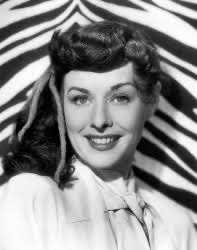
Paulette Goddard (born Marion Levy; June 3, 1910 – April 23, 1990) was an American actress, a child fashion model and a performer in several Broadway productions as a Ziegfeld Girl; she became a major star of Paramount Pictures in the 1940s. Her most notable films were her first major role, as Charlie Chaplin's leading lady in Modern Times, and Chaplin's subsequent film The Great Dictator. She was nominated for an Academy Award for Best Supporting Actress for her performance in So Proudly We Hail! (1943). Her husbands included Chaplin, Burgess Meredith, and Erich Maria Remarque.
Goddard was the daughter of Joseph Russell Levy (1881–1954), the son of a prosperous cigar manufacturer from Salt Lake City, and Alta Mae Goddard (1887–1983). Her father was Jewish, her mother Episcopalian of English ancestry. They married in 1908 and separated while their daughter was very young, although the divorce did not become final until 1926. According to Goddard, her father left them, but according to J. R. Levy, Alta absconded with the child.[11] Goddard was raised by her mother, and did not meet her father again until the late 1930s, after she had become famous.
In a 1938 interview published in Collier's, Goddard claimed Levy was not her biological father.[13] In response, Levy filed a suit against his daughter, claiming that the interview had ruined his reputation and cost him his job, and demanded financial support from her. In a December 17, 1945 article written by Oliver Jensen in Life, Goddard admitted to having lost the case and being forced to pay her father $35 a week.
To avoid a custody battle, she and her mother moved often during her childhood, even relocating to Canada at one point. Goddard began modeling at an early age to support her mother and herself, working for Saks Fifth Avenue, Hattie Carnegie, and others. An important figure in her childhood was her great uncle, Charles Goddard, the owner of the American Druggists Syndicate. He played a central role in Goddard's career, introducing her to Broadway impresario Florenz Ziegfeld.
In 1926, she made her stage debut as a dancer in Ziegfeld's summer revue, No Foolin', which was also the first time that she used the stage name Paulette Goddard. Ziegfeld hired her for another musical, Rio Rita, which opened in February 1927, but she left the show after only three weeks to appear in the play The Unconquerable Male, produced by Archie Selwyn. It was, however, a flop and closed after only three days following its premiere in Atlantic City.
Soon after the play closed, Goddard was introduced to Edgar James, president of the Southern Lumber Company, located in Asheville, North Carolina, by Charles Goddard. Aged 17, considerably younger than James, she married him on June 28, 1927 in Rye, New York. It was a short marriage, and Goddard was granted a divorce in Reno, Nevada, in 1929, receiving a divorce settlement of $375,000.
Goddard first visited Hollywood in 1929, when she appeared as an uncredited extra in two films, the Laurel and Hardy short film Berth Marks (1929), and George Fitzmaurice's drama The Locked Door (1929).
Following her divorce, she briefly visited Europe before returning to Hollywood in late 1930 with her mother. Her second attempt at acting was no more successful than the first, as she landed work only as an extra.
In 1930, she signed her first film contract with producer Samuel Goldwyn to appear as a Goldwyn Girl in Whoopee! (1930). She also appeared in City Streets (1931) Ladies of the Big House (1931) and The Girl Habit (1931) for Paramount, Palmy Days (1931) for Goldwyn, and The Mouthpiece (1932) for Warners.
Goldwyn and she did not get along, and she began working for Hal Roach Studios, appearing in a string of uncredited supporting roles for the next four years, including Show Business (1932), Young Ironsides (1932), Pack Up Your Troubles (1932) (with Laurel and Hardy), and Girl Grief with Charley Chase.
Goldwyn used Goddard in The Kid from Spain (1932), The Bowery (1933), Roman Scandals (1933), and Kid Millions (1934).
The year she signed with Goldwyn, Goddard began dating Charlie Chaplin, a relationship that received substantial attention from the press. It marked a turning point in Goddard's career when Chaplin cast her as his leading lady in his next box office hit, Modern Times, in 1936. Her role as "The Gamin", an orphan girl who runs away from the authorities and becomes The Tramp's companion, was her first credited film appearance and garnered her mainly positive reviews, Frank S. Nugent of The New York Times describing her as "the fitting recipient of the great Charlot's championship".
Following the success of Modern Times, Chaplin planned other projects with Goddard in mind as a co-star, but he worked slowly, and Goddard worried that the public might forget about her if she did not continue to make regular film appearances. She signed a contract with David O. Selznick and appeared with Janet Gaynor in the comedy The Young in Heart (1938) before Selznick lent her to MGM to appear in two films.
The first of these, Dramatic School (1938), co-starred Luise Rainer, but the film received mediocre reviews and failed to attract an audience.
Her next film, The Women (1939), was a success. With an all-female cast headed by Norma Shearer, Joan Crawford, and Rosalind Russell, the film's supporting role of Miriam Aarons was played by Goddard. Pauline Kael later wrote of Goddard, "she is a stand-out. fun."
Selznick was pleased with Goddard's performances, particularly her work in The Young in Heart, and considered her for the role of Scarlett O'Hara. Initial screen tests convinced Selznick and director George Cukor that Goddard would require coaching to be effective in the role, but that she showed promise, and she was the first actress given a Technicolor screen test.
Russell Birdwell, the head of Selznick's publicity department, had strong misgivings about Goddard. He warned Selznick of the "tremendous avalanche of criticism that will befall us and the picture should Paulette be given this part...I have never known a woman, intent on a career dependent upon her popularity with the masses, to hold and live such an insane and absurd attitude towards the press and her fellow man as does Paulette Goddard...Briefly, I think she is dynamite that will explode in our very faces if she is given the part."
Selznick remained interested in Goddard for the role of Scarlett. After he was introduced to Vivien Leigh, he wrote to his wife that Leigh was a "dark horse" and that his choice had "narrowed down to Paulette, Jean Arthur, Joan Bennett, and Vivien Leigh".
After a series of tests with Leigh that pleased both Selznick and Cukor, Selznick cancelled the further tests that had been scheduled for Goddard, and the part was given to Leigh. It has been suggested that Goddard lost the part because Selznick feared that questions surrounding her marital status with Charlie Chaplin would result in scandal. However, Selznick was aware that Leigh and Laurence Olivier lived together, as their respective spouses had refused to divorce them, and in addition to offering Leigh a contract, he engaged Olivier as the leading man in his next production Rebecca (1940). Chaplin's biographer Joyce Milton wrote that Selznick was worried about legal issues by signing her to a contract that might conflict with her pre-existing contracts with the Chaplin studio.
Goddard signed a contract with Paramount Pictures and her next film, The Cat and the Canary (1939) with Bob Hope, was a turning point in the careers of both actors. They promptly were re-teamed in The Ghost Breakers (1940).
Goddard starred with Chaplin again in his 1940 film The Great Dictator. The couple split amicably soon afterward, and Goddard allegedly obtained a divorce in Mexico in 1942, with Chaplin agreeing to a generous settlement.
At Paramount, Goddard was used by Cecil B. De Mille in the action epic North West Mounted Police (1940), playing the second female lead.
She was Fred Astaire's leading lady in Second Chorus (1940), where she met actor Burgess Meredith, her third husband,.
Goddard made Pot o' Gold (1941), a comedy with James Stewart, then supported Charles Boyer and Olivia de Havilland in Hold Back the Dawn (1941), from a script by Billy Wilder and Charles Brackett, directed by Mitchell Leisen.
Goddard was teamed with Hope for a third time in Nothing But the Truth (1942), then made The Lady Has Plans (1942), a comedy with Ray Milland.
She did Reap the Wild Wind (1942), playing the lead, a Scarlett O'Hara type character. Co-starring Milland and John Wayne, it was a huge hit.
Goddard did The Forest Rangers (1942). One of her better-remembered film appearances was in the variety musical Star Spangled Rhythm (1943), in which she sang "A Sweater, a Sarong, and a Peekaboo Bang" with Dorothy Lamour and Veronica Lake. She and Milland did The Crystal Ball (1943).
Goddard received one Oscar nomination for Best Supporting Actress for the 1943 film So Proudly We Hail!.
Goddard was teamed with MacMurray in Standing Room Only (1944) and Sonny Tufts in I Love a Soldier (1944). She was one of many Paramount stars in Duffy's Tavern (1945).
Goddard's most successful film was Kitty (1945), in which she played the title role.
In The Diary of a Chambermaid (1946), Goddard starred with Burgess Meredith, to whom she was married at the time, under the direction of Jean Renoir. It was made for United Artists.
At Paramount she did Suddenly It's Spring (1947) and De Mille's Unconquered (1947). During the Hollywood Blacklist, when she and blacklisted husband Meredith were mobbed by a baying crowd screaming "Communists!" on their way to a premiere, Goddard is said to have turned to her husband and said, "Shall I roll down the window and hit them with my diamonds, Bugsy?"
In 1947, she made An Ideal Husband in Britain for Alexander Korda, and was accompanied on a publicity trip to Brussels by Clarissa Spencer-Churchill, niece of Sir Winston Churchill and future wife of future Prime Minister Anthony Eden.
Goddard and her husband were among several stars in On Our Merry Way (1948).
At Paramount, she did two movies with MacDonald Carey: Hazard (1948) and Bride of Vengeance (1949). She then left the studio.
In 1949, she formed Monterey Pictures with John Steinbeck. Goddard starred in Anna Lucasta (1949), then went to Mexico for The Torch (1950). In England, she was in Babes in Bagdad (1952); then she went to Hollywood for Vice Squad (1953), Sins of Jezebel (1953), Paris Model (1953), and Charge of the Lancers (1954). Her last starring role was in the English production A Stranger Came Home (known as The Unholy Four in the United States).
Goddard began appearing in summer stock and on television, guest starring on episodes of Sherlock Holmes, an adaptation of The Women, this time playing the role of Sylvia Fowler, The Errol Flynn Theatre, The Joseph Cotten Show, and The Ford Television Theatre.
She was in an episode of Adventures in Paradise and a TV version of The Phantom.
After her marriage to Erich Maria Remarque, Goddard largely retired from acting and moved to Ronco sopra Ascona, Switzerland.
In 1964, she attempted a comeback in films with a supporting role in the Italian film Time of Indifference, which was her last feature film.
After Remarque's death in 1970, she made one last attempt at acting, when she accepted a small role in an episode of The Snoop Sisters (1972) for television.
Upon Remarque's death, Goddard inherited much of his money and several important properties across Europe, including a wealth of contemporary art, which augmented her own long-standing collection. During this period, her talent at accumulating wealth became a byword among the old Hollywood élite. During the 1980s, she became a fairly well known (and highly visible) socialite in New York City, appearing covered with jewels at many high-profile cultural functions with several well-known men, including Andy Warhol, with whom she sustained a friendship for many years until his death in 1987.
Goddard married the much older lumber tycoon Edgar James on June 28, 1927, when she was 17 years old; the couple moved to North Carolina. They separated two years later and divorced in 1932.
In 1932, Goddard began a relationship with Charlie Chaplin. She later moved into his home in Beverly Hills. They were reportedly married in secret in Canton, China, in June 1936. Years later Chaplin privately told relatives that they were married only in common law. Aside from referring to Goddard as "my wife" at the October 1940 premiere of The Great Dictator, neither Goddard nor Chaplin publicly commented on their marital status. On June 4, 1942, Goddard was granted a Mexican divorce from Chaplin.
In May 1944, she married Burgess Meredith at David O. Selznick's home in Beverly Hills. They divorced in June 1949.
In 1958, Goddard married author Erich Maria Remarque. They remained married until Remarque's death in 1970.
Goddard had no children. In October 1944, she suffered the miscarriage of a son with Burgess Meredith.
Goddard underwent invasive treatment for breast cancer in 1975, successfully by all accounts. On April 23, 1990, aged 79, she died at her home in Switzerland from heart failure while under respiratory support due to emphysema. She is buried in Ronco Village Cemetery, next to Remarque and her mother.
6 notes
·
View notes
Text
Noel Coward: Renaissance Man of Stage and Screen By Susan King
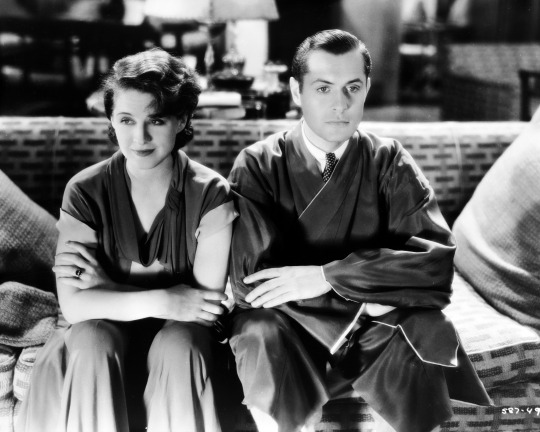
Noel Coward was known simply in England as “The Master.” And for good reason. Coward (1899-1973) was a true Renaissance man. He was an actor, playwright, composer, songwriter, producer and director. (Lin-Manuel Miranda is our contemporary version of Coward.) He even headlined the Desert Inn in Las Vegas in 1955. He knew he was a genius. Coward once described himself as an “enormously talented man, and there’s no use pretending that I’m not.”
He wrote such classic plays as Private Lives, Design for Living, Blithe Spirit, Cavalcade, The Vortex and Present Laughter. And, he took the stiff-upper lip of his characters. His comedies were filled with extravagant characters firing off delicious bon mots. His dialogue was spare and contemporary. Kenneth Tynan once said, “Coward was the Turkish bath in which English comedy slimmed.”
Needless to say, acting styles changed with Coward and he ushered in a new style of theater. Performers were no longer trapped in the 19th-century style of more declamatory acting. As a composer, the flamboyant Coward wrote such beloved songs as “Mad Dogs and Englishmen” and “I’ll See You Again.” Hollywood soon took notice of Coward the playwright. One of Coward’s biggest West End hits was 1931’s Cavalcade, a sweeping dramatic epic spanning 30 years in an upper-class family. The cast featured a staggering 200 actors, 22 sets including revolving stages and hydraulic platforms. Brad Rosenstein of the Museum of Performance & Design in San Francisco told the L.A Times in 2010 about the stage production: “In the earlier sections, it’s very realistic, almost like a movie, but as the story moves further and further into the 20th century, it becomes more and more surreal.”

Fox bought the film rights, shooting the stage production to use as a blueprint for its lavish 1933 film production starring Diana Wyngard and Clive Brook. “Designer William Cameron Menzies translated his stage montages into movie terms and that became the language of movie montages for the next 30 years,” said Rosenstein. CAVALCADE earned three Oscars including best film and director for Frank Lloyd. But truth be told, the film just hasn’t held up as well as other best film Oscar winners from that era. It’s handsome and well-acted but is a bit of a slog that screams prestige.
MGM’s “Boy Wonder” producer Irving Thalberg, who happened to be married to the studio’s top star Norma Shearer, bought the film rights to Private Lives for his wife. Rounding out the film adaptation’s cast was Robert Montgomery, Reginald Denny and Una Merkel. The farce, released in 1931, whirls around Amanda (Shearer) and Elyot (Montgomery), divorcees who reunite on their honeymoon with their new spouses and run off together.
Coward initially wasn’t thrilled that Shearer, who was best known for her heavily dramatic roles, was cast as Amanda. He didn’t think she was up to the comedic task. Shearer was unruffled: “I don’t care what he thinks.” Reviews were strong and so was the audience response. But truth be told, in the #MeToo climate, it’s hard to watch a film in which the leads scream, yell and throw things at each other and state that certain women should be struck regularly like gongs. Eleven years later, Shearer returned to Coward’s world in WE WERE DANCING (‘42) based on two short plays from the Master’s 1936 play Tonight at 8:30 She hadn’t made a film since 1940, so there was hope this comedy would revive her career. It didn’t.

Movie audiences finally got to see Coward the actor on screen in 1935. Not in a film based on one of his plays but an extraordinary morality piece, THE SCOUNDREL penned and directed by Ben Hecht and Charles MacArthur. Coward is remarkable as the title character, a New York publisher surrounded by sycophants and ruthless and callous in his treatment of people especially a lovely young poet (Julie Haydon). Coward’s Anthony Mallare destroys everything he touches including the poet and her lover (Stanley Ridges). When she learns that Mallare is taking a flight, she tells him that not only does she hope the plane crashes, she desires that as he dies, he knows no one will shed a tear for him. And when the plane crashes, he returns to the earthly world for a month to find someone who will mourn for him.
Mordaunt Hall wrote in his New York Times review: “As a suavely mannered portrait of decadence, The Scoundrel is a remarkably interesting motion picture. Mr. Coward is so perfectly attuned to the part we cannot help suspecting that he contributed to the dialogue. He is a master at delivering the barbed epithet. You have to hear him reciting a line like ‘It reeks with morality-stressing the r’s so as to make it exquisitely funny-to know how good he can be.”
Hecht and MacArthur won an Oscar for their story. Coward won his own special Oscar in 1943 for his stirring World War II drama IN WHICH WE SERVE (‘42) for “outstanding production achievement.” IN WHICH WE SERVE is far more than a propaganda piece to keep British morale up and the home fires burning. The film was inspired by Coward’s friend Lord Louis Mountbatten, who in 1941, lost his ship when it was sunk in the Battle of Crete. Coward stars, produced, penned the music and co-directed with a former editor by the name of David Lean. The story is generally told in flashback about the survivors of a Royal Navy ship that had been destroyed by German torpedoes. While recalling moments in their lives, they hang on to a small lifeboat waiting to be rescued.
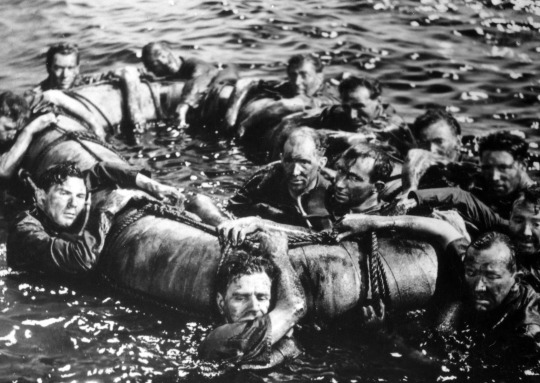
Besides Coward, the film also stars Celia Johnson, John Mills and Richard Attenborough, who though uncredited in his film debut, is a stand-out as a sailor. A young Daniel Massey, who was the child of Raymond Massey, plays Coward’s son. Daniel was also Coward’s godson, and 26 years after the release of IN WHICH WE SERVE, he earned a supporting actor Oscar nomination as Coward in the Gertrude Lawrence bio-pic STAR! (‘68). IN WHICH WE SERVE was also nominated for the best film and screenplay Oscars.
Coward and Lean next collaborated in 1944 with the moving THIS HAPPY BREED, another sweeping epic. Based on Coward’s hit play of the same name, THIS HAPPY BREED revolves around a middle-class family who move into a rented house in 1919 and it follows their lives until the declaration of World War II in 1939. Lean directed this classic solo and he gets fabulous performances from the cast which includes Celia Johnson, Robert Newton, Stanley Holloway and John Mills. Ronald Neame provided the stunning Technicolor cinematography. It’s funny, moving and poignant and you’ll find yourself shedding a few tears along the way.
The year 1945 was a prolific one for producer Coward and director Lean. The duo went the Technicolor route with gorgeous results for the hit film version of Coward’s popular comedy-fantasy BLITHE SPIRIT. Rex Harrison portrays a writer who finds his world is turned upside-down when an eccentric medium (a perfect Margaret Rutherford) accidentally conjures up his dead first wife (Kay Hammond) who is jealous of his current spouse (Constance Cummings). The film lacks the spark of the stage play, but it’s still fun and the then cutting-edge special effects won the Oscar.

And what can one say about BRIEF ENCOUNTER (‘45)? One of the most romantic films of all time and stars the delicate Johnson and the handsome Trevor Howard as married people who meet at a small railway station café and fall in love. Everything comes together perfectly in this masterpiece that was released in the U.S. in 1946. Based on Coward’s play Still Life, BRIEF ENCOUNTER is beautifully directed by Lean who really came into his own with this film. The performances of Johnson and Howard are pitch perfect and poignant; Robert Krasker supplied the atmospheric black-and-white cinematography and the use of Rachminoff’s Piano Concerto No. 2 just adds to the romance.
Lean won the grand prize for his direction at the Cannes Film Festival in 1946 and earned his first Oscar nomination for Best Director in addition to sharing a screenplay nomination with Anthony Havelock-Allan and Neame. Johnson was nominated for best actress which she lost to Olivia de Havilland for TO EACH HIS OWN (’46), but Johnson did win the New York Film Critics honor.
#Noel Coward#Blithe Spirit#Brief Encounter#Private Lives#Norma Shearer#playwright#David Lean#Susan King
62 notes
·
View notes
Text
The Hollywood field test: Casey Affleck on his motivation for doing “I’m still here” * with Joaquin Phoenix
“A lot of people wouldn’t have done that, and a lot of people are smarter than I am so... That was a result of a kind of impulsive mind, to resist doing what I’m told I should do and do things that just interest me.

Affleck in The Assassination of Jesse James by the Coward Robert Ford
There were some opportunities that were created by “Jesse James” (editor‘s note: Affleck earned an Academy Award nomination for Best Actor in a Supporting Role for his Robert Ford in The Assassination of Jesse James by the Coward Robert Ford in 2007)... not that many, it wasn’t like every door in town flung open.
The movie didn’t do well for one thing. You know, you can be in a piece of junk that makes 100 million dollars, then a lot of people send you scripts. You can be in a movie that is great like “Jesse James”, and it makes 10 million dollars, and nothing changes.
So I did have a few more opportunities, but what I was really interested in doing was this thing, this “mockumentary” I guess. And I thought it was really funny. The whole time I thought it was funny. I thought it was a comedy, I thought I was making a rather broad comedy.

Phoenix and Affleck filming for I’m still here.
And when we showed it at Venice Film Festival, in a theatre of 1000 people, there was... I was laughing, and one other person was laughing in that theatre, and that was Joaquin. It was the first time I had ever shown it to anyone, I just didn’t wanna do a million screenings... And so I realized instantly: Okay... No one’s gonna like this, so just enjoy the ride.

Affleck on the red carpet for the premiere of I’m still here in Venice 2010
I still think it’s quite funny. (...This wasn’t the authentic Joaquin Phoenix living his life.) It was a total fabrication. What if you have a completely fictional character, and then put it into a Maysels Brothers documentary (editor’s note: https://en.m.wikipedia.org/wiki/)Albert_and_David_Maysles)

Film Poster for I’m still here
I can’t even take credit for it, I mean, people have done this kind of thing, from Orson Welles’ “F is for Fake” to Andy Kaufman, there’s a long tradition - or medium length tradition - of people doing things like this, and perhaps it was done better than we did it, but still it was a lot of fun.

Andy Kaufman as fake entertainer Tony Clifton
And the idea was never to fool people. I don’t ... I mean, even with Andy Kaufman, there was something else going on other than just to pull the wool over people’s eyes, it wasn’t like an Ali G. I think there was something he was really interested in, like the way that people really react, and sort of trying to provoke drama instead of writing it. We wanted to provoke drama instead of reenacting it. (...)
I also showed the movie to David Fincher early on, and he is someone I really respect and also is kind of a friend. And he met me out for lunch, and then he said: Well, you know what I think you should do with the movie? I think you should put it in the vault.

Affleck behind the camera filming I’m still here
And I said: A vault! Uh, that sounds good. I sort of was thinking that was maybe an alternative distribution method or some digital effect you can do, and I was like: Yeah, let’s put it in a vault, like, who would put it in a vault for me, what does a vault do? And he was like: No, I mean... don’t show it to anyone, lock it up for ten years, sit on it, don’t let anyone see it. And it took me a long time, a few minutes probably, to process what he was saying was: Don’t show this movie to anybody.

Phoenix in I’m still here
And he may have been right, I wish I maybe had taken that advice. It didn’t make any money anyway. My response was: Dude, I have to recoup my investment, we gotta sell the movie. And we sold the movie for nothing, and made nothing. And a lot of people were annoyed, sort of pissed off and angry, sort of inexplicably angry.
It provoked an outrage that is still mysterious to me. (Editor’s note: Interviewer suggesting that people might have been concerned about Joaquin with his family history of celebrity and drugs)... My response to that is: If people were so concerned, why were people at the Oscars dressing up like Joaquin Phoenix and mocking him. Ben Stiller came out and presented an Oscar in a Joaquin costume.

Ben Stiller costumed as Joaquin Phoenix at the Oscars 2010.
If people actually thought: This is a man struggling with addiction and mental illness, this is not how you want the community to support one another. When we were going to concerts, and he would sort of melt down or fight with someone in the audience, those people were plants, but the audience didn’t know, and they would just videotape it! I mean, I never witnessed... very rarely I experienced anyone to response to Joaquin out of good will and concern.

Phoenix at David Letterman
The reception was demoralising (after putting two years of my life into the film), but I have developed over the years a pretty thick skin and also the ability to bounce back from crushing demoralisation. For whatever reason, probably just something my mom taught me, it’s pretty easy to say: You know what, fuck ‘em. But it have been years that I wanted to act again...

* I'm Still Here is a 2010 mockumentary comedy-drama film directed by Casey Affleck, and written by Affleck and Joaquin Phoenix. The film purports to follow the life of Phoenix from the announcement of his retirement from acting through his transition into a career as a hip hop artist. Throughout the filming period, Phoenix remained in character for public appearances, giving many the impression that he was genuinely pursuing a new career.
This is a transcript from the great THR Award Chatter Podcast https://podcasts.apple.com/de/podcast/awards-chatter/id1039032256?i=1000376266310
#casey affleck#joaquin phoenix#im still here#i’m still there#mockumentary#most underrated movies#film making#comedy#andy kaufman#maysels#ben stiller#oscars#hollywood#david fincher#movies#actors#interviews#mental illness#addiction
6 notes
·
View notes
Text
Dickheads of the Month: September 2019
As it seems that there are people who say or do things that are remarkably dickheaded yet somehow people try to make excuses for them or pretend it never happened, here is a collection of some of the dickheaded actions we saw in the month of September 2019 to make sure that they are never forgotten.
As if proven liar Boris Johnson suspending parliament to try and force through a No Deal Britait at the end of August didn’t look dictatorial enough, he then moved on to threatening and Tory MP who doesn't fall in line with deselection - and yet, rather than call this the obviously despotic move that it is, instead the media spent more time focusing on him adopting a fucking dog
Master strategist Dominic Cummings said that, rather than listen to “rich Remainers” in London, people should listen to those all over the country - which certainly helped, as Cummings’ genius idea to have proven liar Alexander Boris De Pfeffel Johnson walk the streets of Morley and Doncaster saw said proven liar have to listen to the non-rich giving him both barrels for being responsible for the mess we are currently in
Not only did Laura Kuenssberg repeat what the press did with Carrie Symonds’ neighbours and throw around the term “Labour activist” to dismiss the very real concerns of the father whose daughter was in the understaffed hospital that proven liar Boris Johnson visited for a press op and then called out the proven liar’s claims it wasn’t a press op by pointing to the camera crew a few feet away, but she went one step further by doxxing the person by posting one of his tweets to her Twitter timeline, which unsurprisingly led to him getting a dog’s abuse from people because he dared say bad things about proven liar Boris Johnson - abuse he would not have got if Kuenssberg hadn’t doxxed him to her 1.1m Twitter followers, all because she wanted to distract attention from the fact her beloved BoBo had been caught on camera lying to someone’s face
...and it wasn’t long before the BBC proved their blatant double standards, having circled the wagons around Kuenssberg to say she did nothing wrong while doxxing a member of the public, yet disciplining Naga Munchetty for an off-the-cuff remark about the Orange Overlord saying Trump saying non-whites who criticise him should “go back where they came from” is racist
There is nothing sinister about Dominic Cummings saying that, if MPs wants to stop receiving death threats, they need to get Britait done. Absolutely nothing sinister about that at all...
When Jacob Rees Mogg wasn’t literally lying in parliament, he was dismissing the genuine concerns of neurologist Dr David Nicholl by comparing his concerns to those of anti-vaxxer Andrew Wakefield, who was struck off for giving erroneous advice
I’m trying to work out if Justin Trudeau forgot about the whole wearing blackface thing, or merely assumed everyone else had. Either way, at best he could generously be accused of gross naivety - especially when the second round of photos came out, after he tried to pass it off as a one-time prank
So not only did proven liar Boris Johnson sound supremely cuntish by saying that leaving the EU would honour the memory of Jo Cox - that’s the same Jo Cox who, while campaigning for Remain, was murdered by a member of Britain First - but when quizzed on this Bernard Jenkin could only respond about the stress that the proven liar was under, because as we all know the real victim is the person who said something monumentally dense and not the person murdered by a member of the far-right on the streets of their constituency
If anyone can explain what the hell compelled Stephen Kinnock to suddenly decide that Theresa May’s deal should have yet another going over in parliament in spite it being defeated three times already and her not even being PM at this point, let alone why he wanted to bring this up at the moment No Deal was being defanged, I would love to hear it
Something compelled Quentin Letts to compare the recently-deceased Robert Mugabe to Boris Johnson...as a compliment
Compelling argument against nominative determinism James Cleverly thought he was being clever by keeping up the “chicken” jibes against Jeremy Corbyn that proven liar Boris Johnson and his cronies at The Sun had been keeping up for days in a desperate attempt to pretend Corbyn hadn’t spotted an obvious tarp by Dominic Cummings and sidestepped it...right up until his stunt ended up seeing the entire Tory party get bitchslapped by Kentucky Fried Chicken
...and it wasn’t long before proven liar Boris Johnson rendered all jibes of Corbyn being “chicken” laughable when he responded to some heckling when visiting Luxembourg by publicly running away from a press conference with Luxembourg’s PM
According to Kwasi Kwarteng there are people up and down the country questioning the impartiality of the Scottish judges who ruled Boris Johnson’s prorogation of parliament unlawful. Just a reminder, Kwasi Kwarteng is the Business Secretary and not a Youtube right-wing conspiracy nut
Waffling gargoyle Nigel Farage has decided that those dozens of appearances on BBC political programming over the last decade were examples of the BBC being biased against him, and he;s boycotting all future appearances. He neglected to mention whether or not any other member of The Nigel Farage Ego Project would follow suit...
We saw just how little credibility Laura Kuenssberg has on the 2nd September edition of The Six O’Clock News where she stood outside 10 Downing Street talking about how proven liar Boris Johnson would be calling a snap election, only for her to be cut off mid-sentence by the proven liar walking out to waffle for five minutes where the only thing of note he said that wasn’t an easily-debunked lie was that there would be no election...and once he was finished Kuenssberg continued talking about a snap election as if she hadn’t been stood less than twenty feet away when it was said there would be no election
The fact that nobody was surprised when James Cleverly falsely claimed that the Tories created the NHS during the Tory conference isn’t a surprise - not least because it’s not even the first time Cleverly has made that patently false claim
It would appear that Alan Sugar misses the days that he and not Alexander Boris De Pfeil Johnson was being held up as the British answer to Donald Trump, judging by his posting a tweet taking aim at the dogwhistlers’ favourite target Diane Abbott
We are supposed to feel sorry for David Cameron after his memoirs stated that he thought that Boris Johnson and Michael Gove behaved “appallingly” before and during the EU Referendum campaign. If only the party leader did something about this, which they were in the position to do, and what was the name of the leader of the Tories at that moment in time again...?
Forgetting that we’re supposed to be calling Jeremy Corbyn a chicken, instead our good and honest friends at the Daily Mail instead ran an article about how awful it was that Jeremy Corbyn supported the Guildford Four’s Paul Hill. That’s the Paul Hill who, like the other members of the Guildford Four (and the Maguire Seven) were threatened, beaten and tortured by the police and served fifteen years in jail for being members of the IRA in spite of the fact that they weren’t members of the IRA nor plotted any terror attacks, and the Mail thinks it’s bad to show support for someone who was a victim of one of the worst miscarriages of justice in British history
It’s a bit rich for Rachel Riley to be the face of the Don’t Feed The Trolls campaign considering her history of harassing, doxxing and encouraging pile-ons on anyone who disagrees with her
Sentient testicle Toby Young thought he was being really, really clever when he accused Phillip Hammond of an “anti-semitic conspiracy theory” after Hammond stated that the sole reason for proven liar Boris Johnson trying to take the UK out of the EU by October 31st is to help out his speculator mates - although the cleverness rapidly evaporated when Hammond responded personally with a threat of suing for libel, and for some strange reason Young’s really, really clever tweet vanished off the face of the earth
...and because Toby Young has to be Toby Young about things, rather than keep his head down after Hammond’s threat of legal action instead he came rushing to the defence of the proven liar by saying that female Spectator employees felt upset if they weren’t groped by proven liar Boris Johnson, which is not only the defence of the rapist but his “defence” only serves to say that proven liar Boris Johnson has a history of groping
It’s as if The Sun have decided they can go back to their pre-Leveson levels of scumbaggery, judging by how they’d both told Gareth Thomas’ parents he was HIV positive and threatened to publish it, as well as reporting how two members of Ben Stokes’ family had been shot and killed several years ago without actually obtaining consent from Stokes before splashing it across their front page
...and right on their heels was the Daily Mail doxxing Jo Maughan for the sole purpose of...nope, no idea why they felt the need to do so, but they did it anyway
If Steve Baker thought he was helping the Leave side look non-deranged, his claiming that proven liar Boris Johnson is moving the Tories back to the centre ground failed to do that on a molecular level
It’s all well and good the Liberal Democrats acting as if bringing in Luciana Berger and Angela “funny tinge” Smith as MPs is some kind of major breakthrough...but they sure kept it quiet that they wouldn’t be defending the parliamentary seats they’ve been squatting in since February
So nice of Mike Gapes to join the dogwhistling brigade with his deciding to highlight Diane Abbott’s poor use of grammar...by highlighting that she was using grammar correctly while Gapes’ attempts at grammar bullying only served to highlight his grasp of the English language could be better
It says it all that the Daily Mail was encouraging their readers to stop sponsoring the RNLI for the crime of using 2% of those donations to support causes abroad
To nobody’s surprise, as soon as John Humphrys was out the door he harrumphed about the BBC’s “liberal bias” to the Daily Mail - as if over thirty years of his using the Today programme as a platform of his right-wing views and generally being a miserable twat
How generous of Tim Martin to say that, as the UK had left the Customs Union, Wetherspoons could now charge 20p less per pint...except Britain hadn’t left the Customs Union, revealing that Martin could have cut prices long ago if he wanted to, but he obviously felt he didn’t need to as the chain’s profits weren’t nosediving as a direct consequence of Tim Martin alienating half of his customer base for the past three years
According to reports, Nicalis head honcho Tyrone Rodriguez went to the same business school as Channel Awesome supremo Mike Michaud, judging by the reports coming out that he would go weeks without answering any calls - which is not what an indie dev who sent their game over to Nicalis to be ported wants to discover - as well as a laundry list of evidence of him not realising he isn't a 14-year old edgelord who can only talk in raicst, antisemitic, homophobic or ablest slurs, on top of his charming habit of bullying members of staff
In the latest attempt by PewDipShit to prove he's not beholden to the alt-right section of his fanbase he offered to donate $50,000 to the Anti-Defamation League...and when that same alt-right section of his fanbase kicked up a fuss, he cancelled the donation and waffled about “taking responsibility” while demonstrating that how averse he is to the idea
This month it was John Ocasio-Nolte who was getting insanely triggered by Greta Thunburg, taking to Twitter to suggest she either needs to be spanked or receive psychological counselling (which worked about as well as can be expected the second the tweet was posted) while Dinesh D’Souza said she looks just like images used for Nazi propaganda as if that means anything other than Dinesh D’Souza spend hours going through Google image searches to try and find something, anything that would serve as the basis of an utterly batshit proclamation that his moron followers would swallow
Not a good look for Focus Home Entertainment to decide that, once their deal to distribute Frogwares’ games expired, their solution would be to drop all of Frogwares’ games from every online store - yet rather than return the code to Frogwares, instead they’d be keeping those as well because if Focus Home can’t sell those games, no-one can
It’s not a surprise to see The Sun forgot the faux outrage they stoked last December at trying to say Jeremy Corbyn called Theresa may a “stupid woman” (even though any lipreader will tell you he said “stupid people” of the entire Tory front bench) judging by their response to proven liar Boris Johnson calling Corbyn a “big girl’s blouse” was to dispatch one of their hacks to Corbyn’s house the following dya waving an item of women’s clothing at him, seemingly under the impression this looked anything other than mad
Meanwhile The Daily Telegraph wrote a piece comparing waffling gargoyle Nigel Farage to Britait’s Icarus...somehow forgetting how the story of Icarus ended
Britain’s most triggered man Piers Moron Morgan took to Twitter to howl about how Dora the Explorer discourages men from becoming explorers. I’m guessing that he forgot how Indiana Jones and Nathan Drake exist...
What would a month be without Donald Trump doing something utterly lunkheaded? Not this month, that’s for sure, judging by his response to mistakenly claiming that Hurricane Dorian was heading to Alabama wasn’t to admit the mistake or even never mention it again, but instead draw on a weather map with a Sharpie to make it look like Dorian’s path would now head into Alabama - so not only did he prove he can’t admit to being wrong, but he’s so thin-skinned his being wrong eats at him so much he can’t let his being wrong go, which only draws attention to his being wrong in the first place
1 note
·
View note